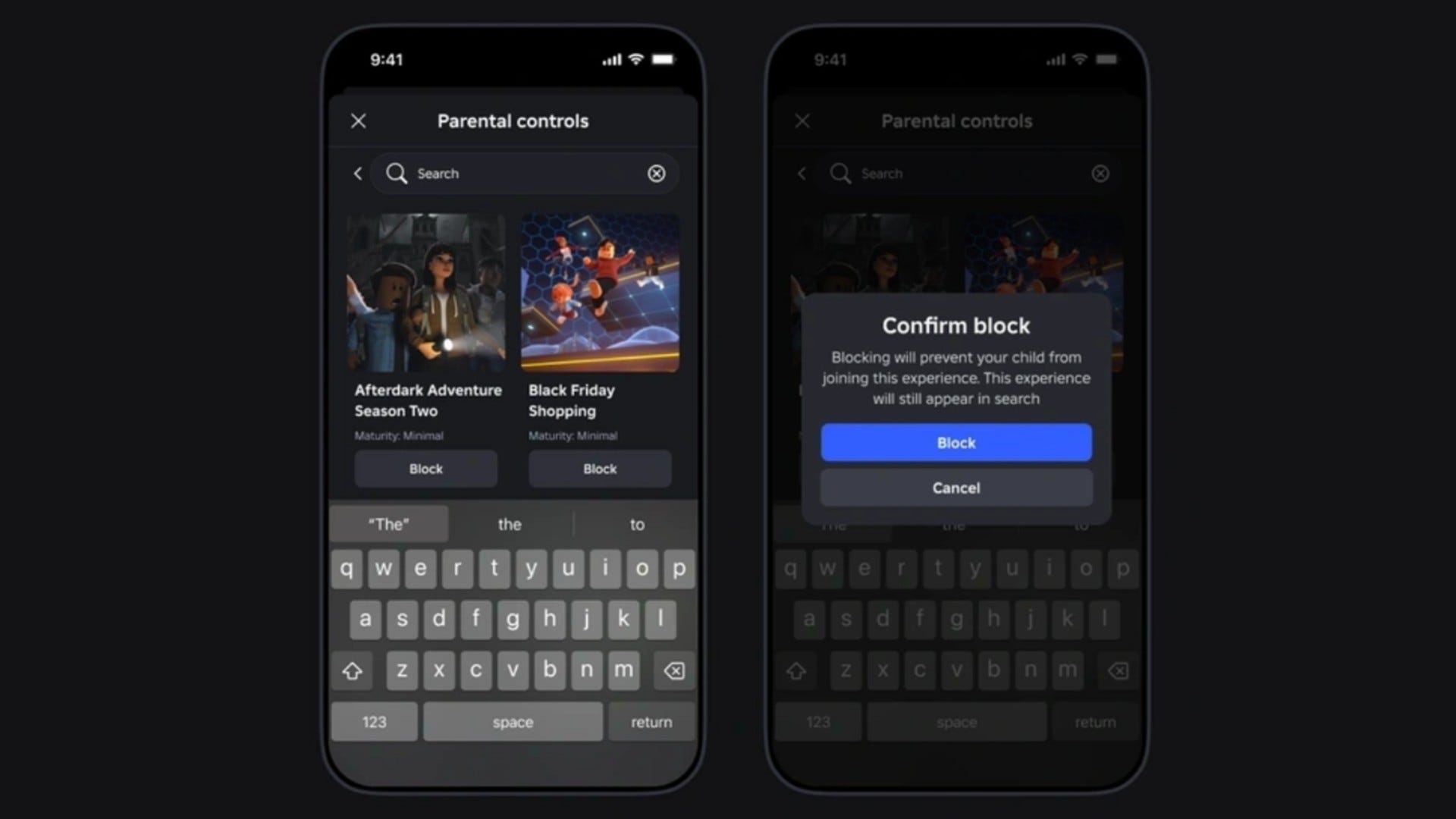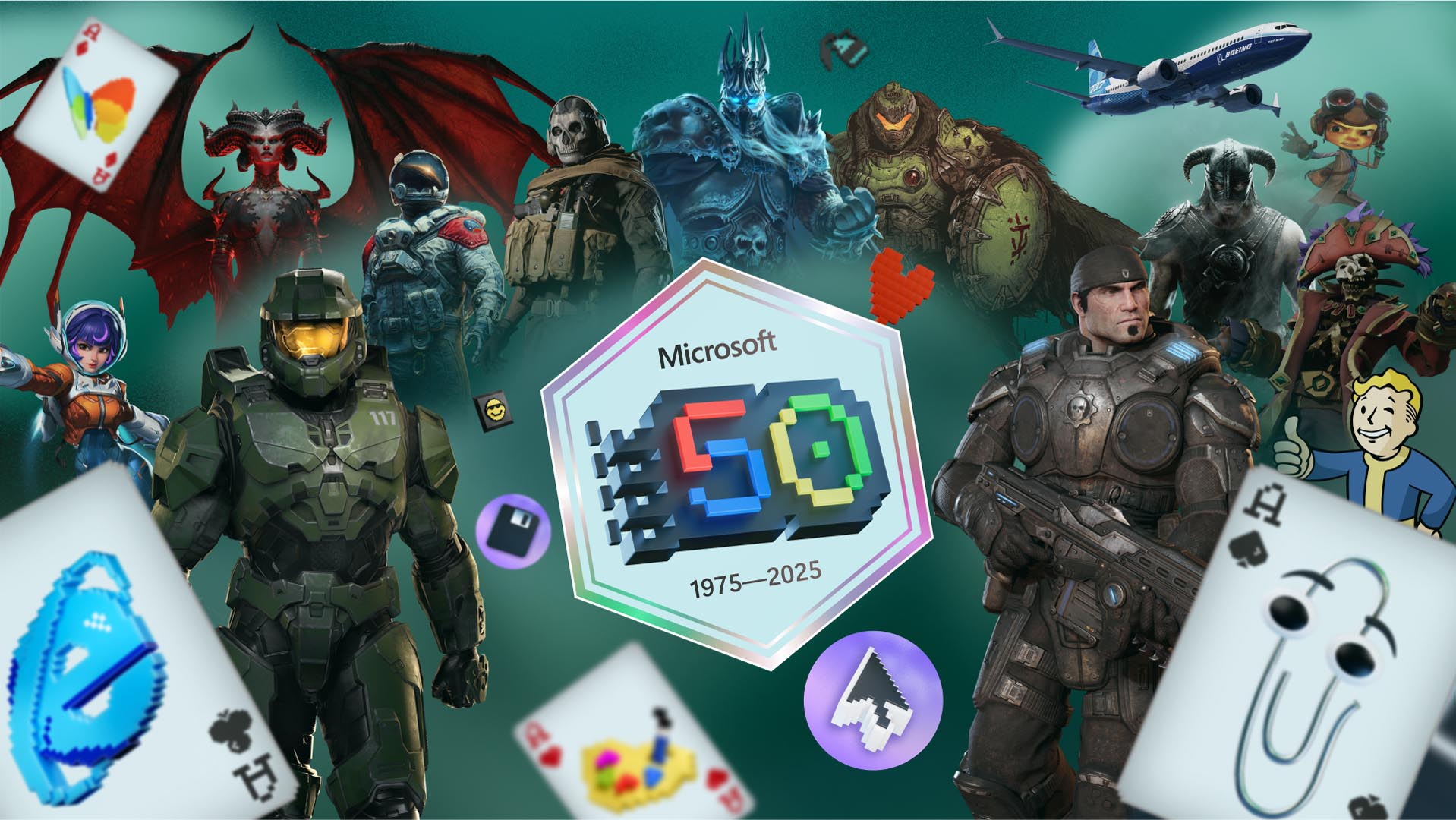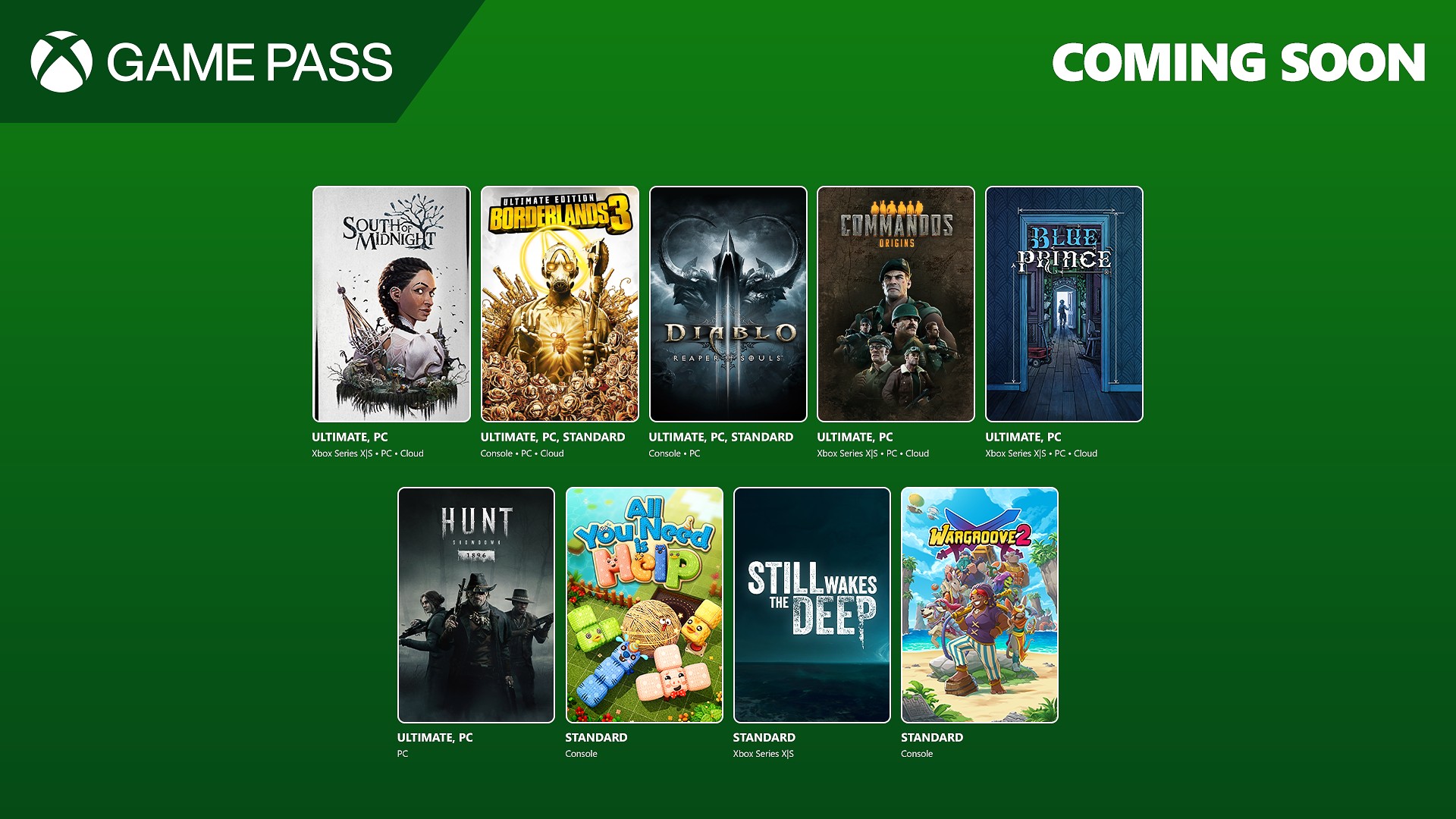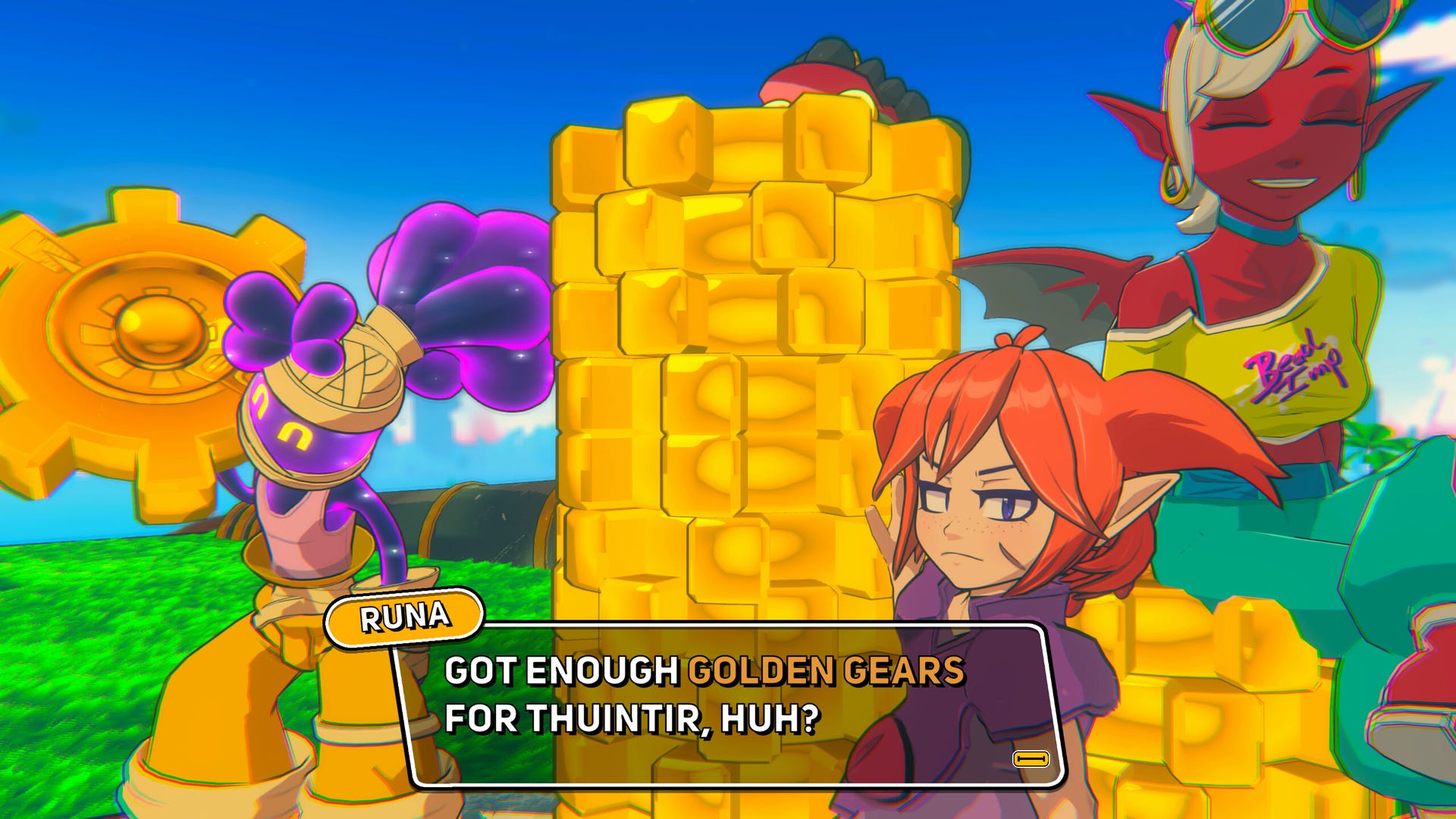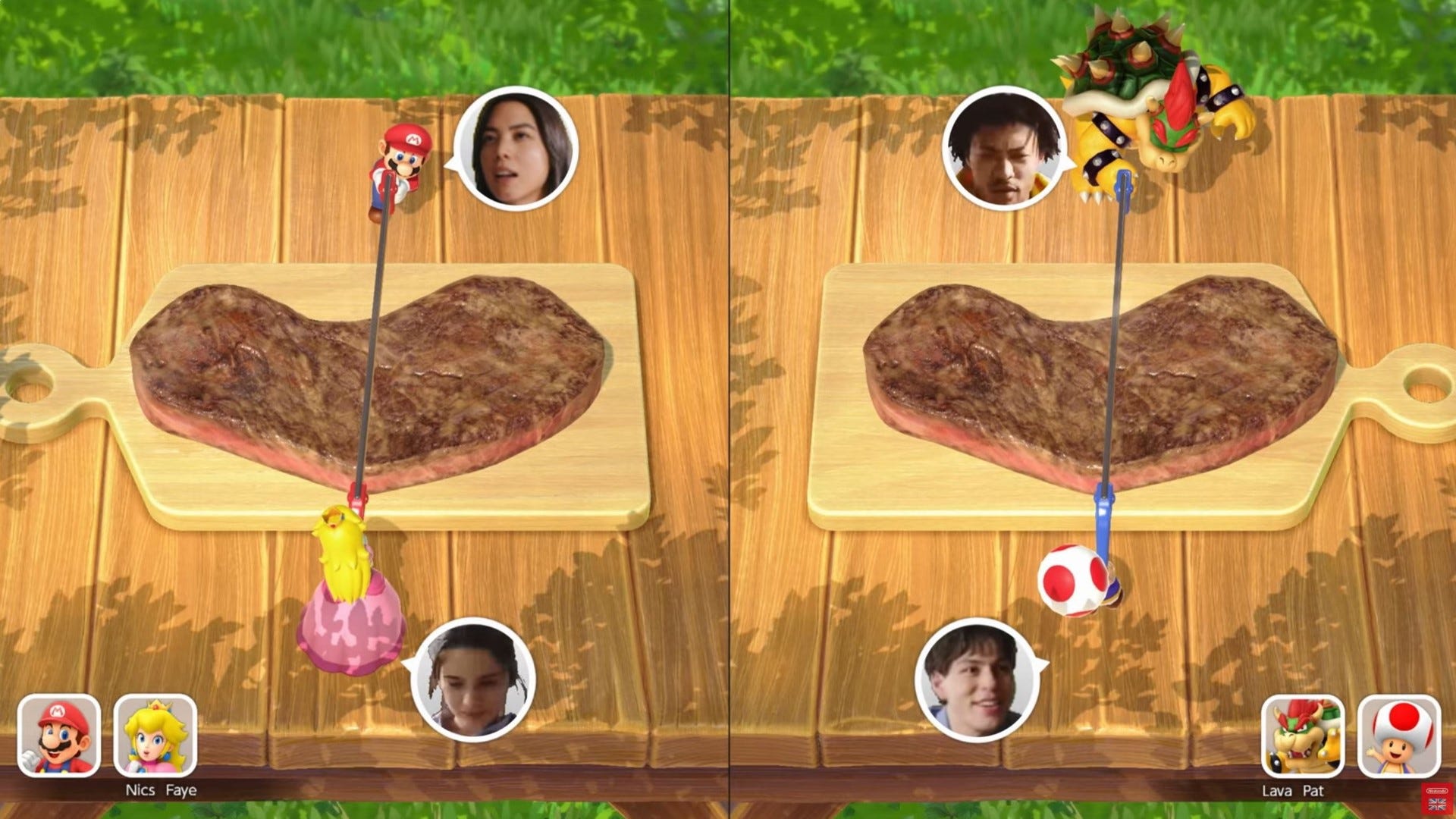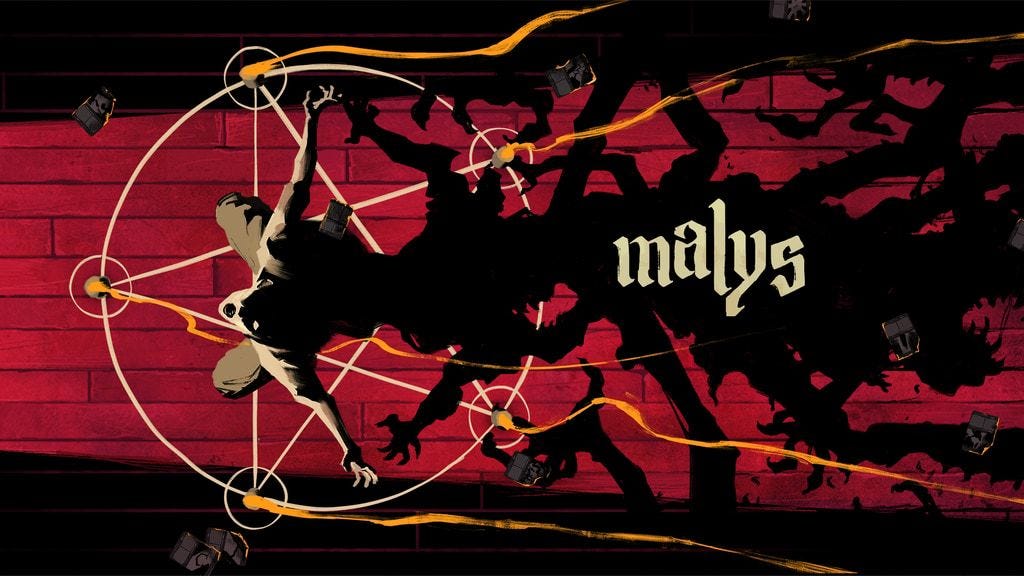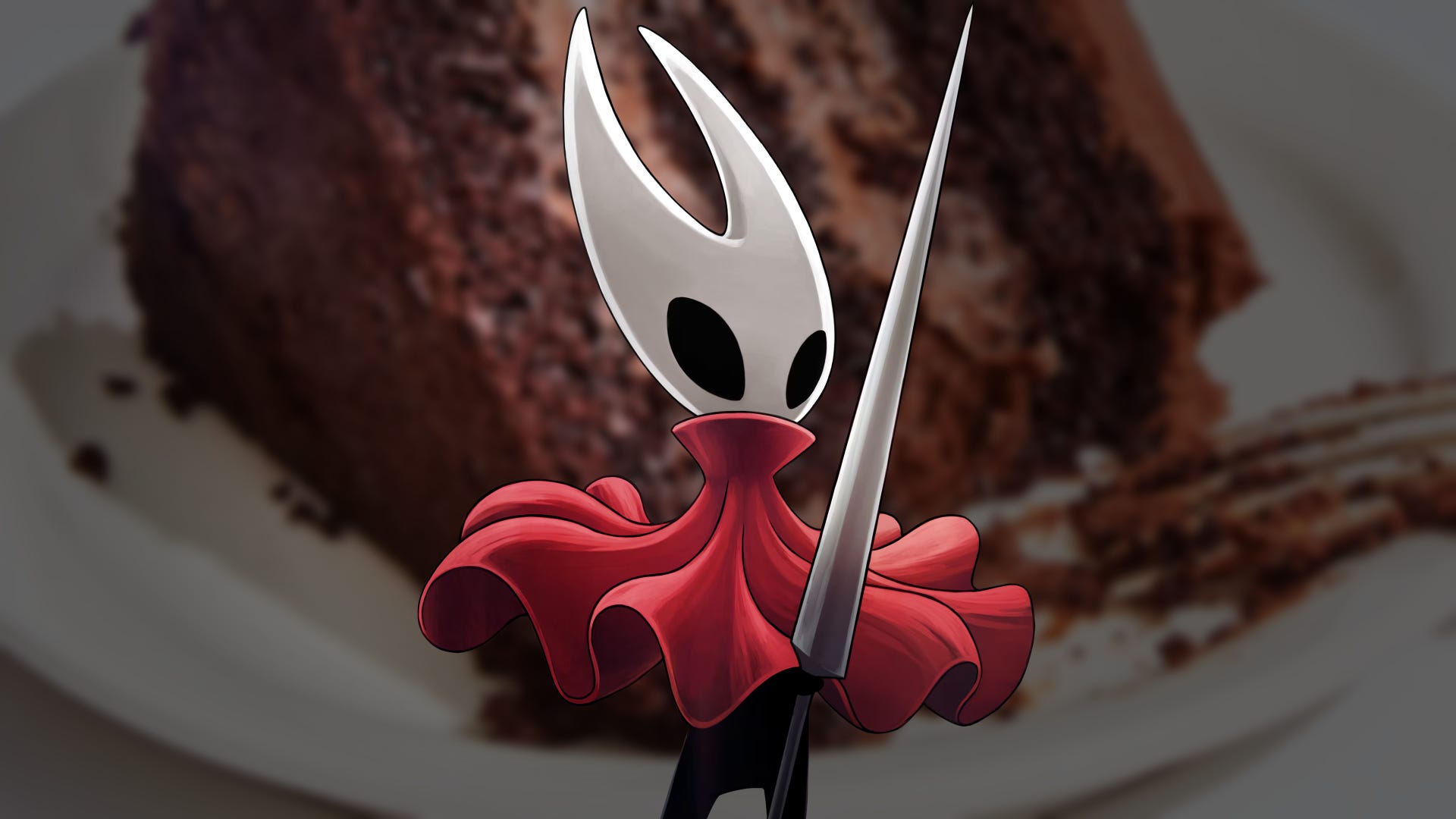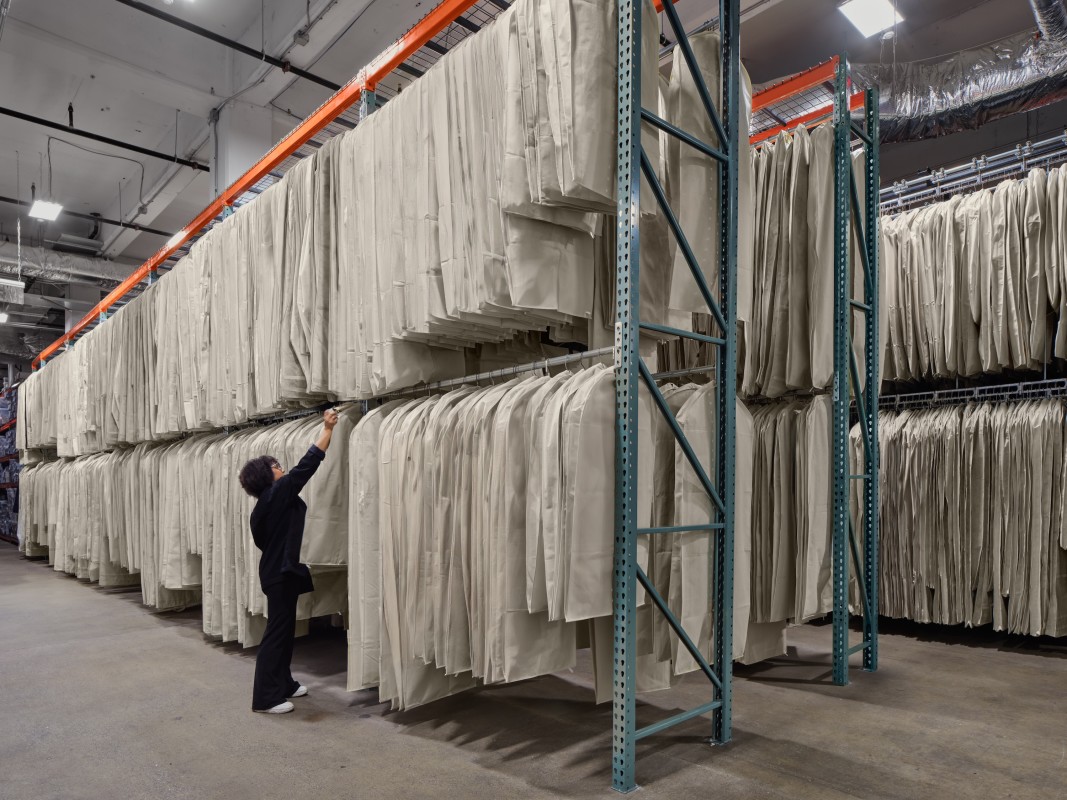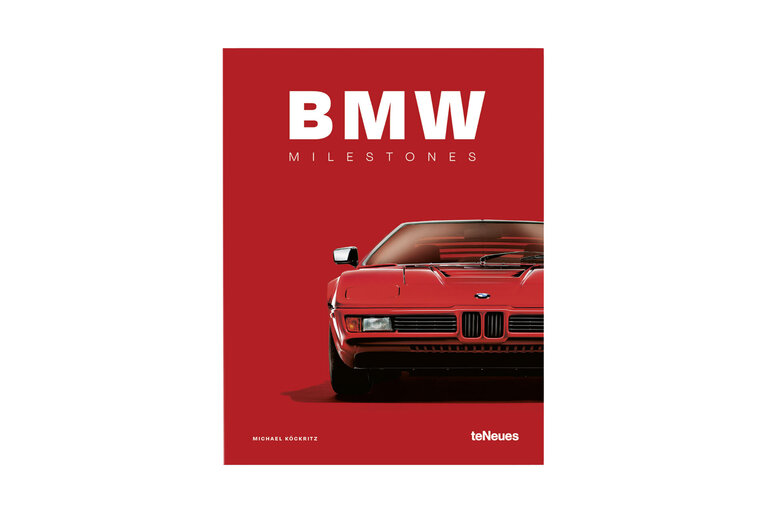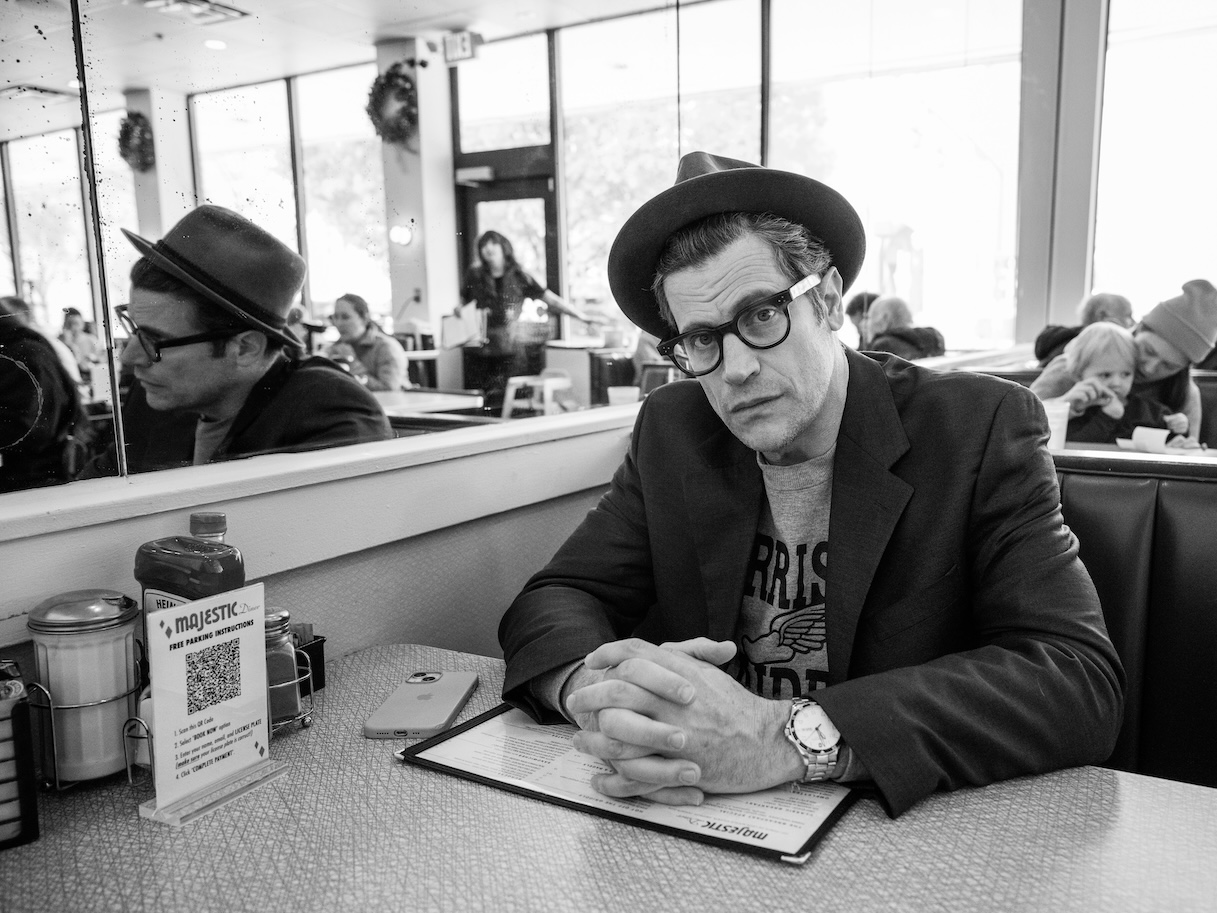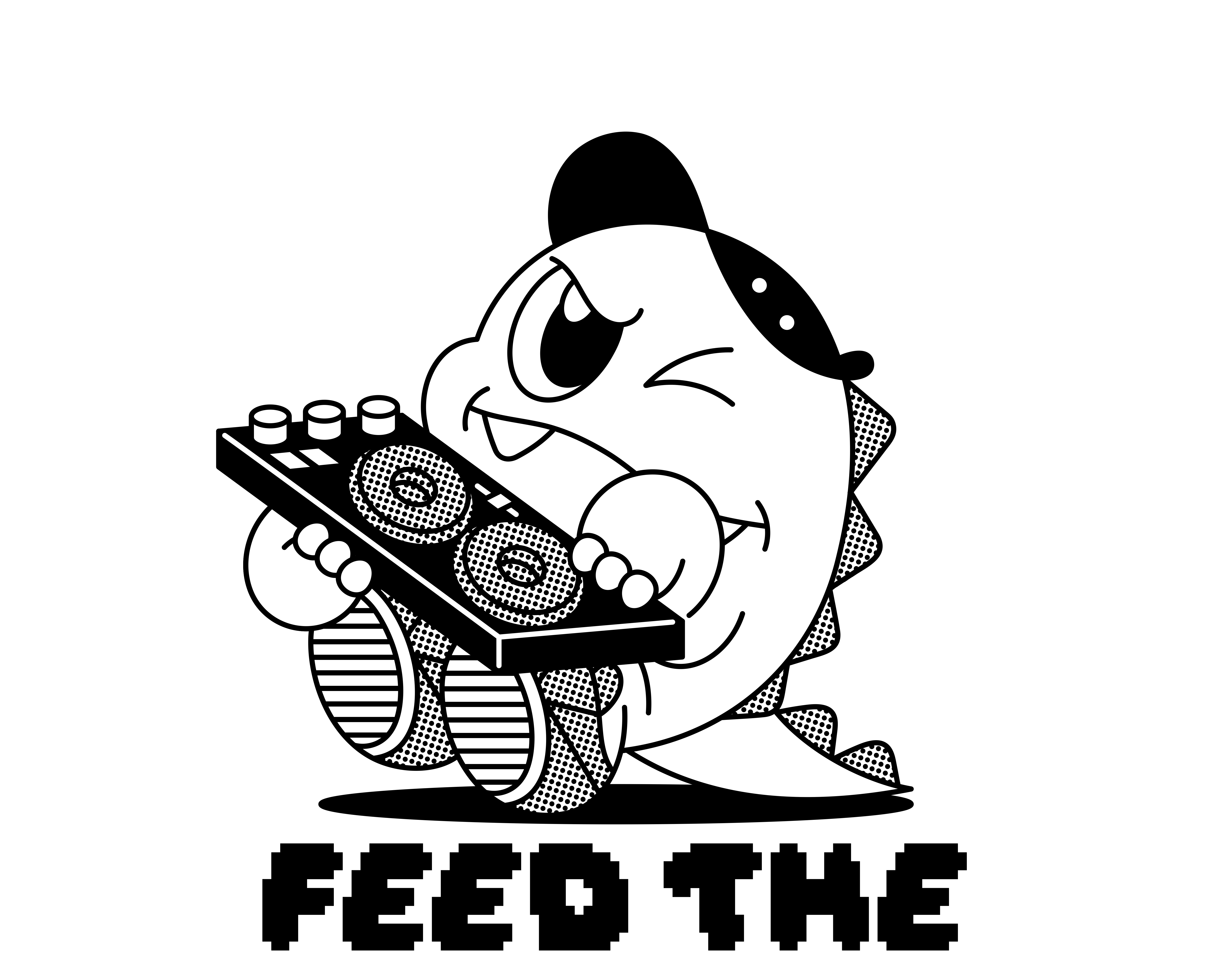Scriptnotes, Episode 681: The Waiting Game, Transcript
The original post for this episode can be found here. John August: Hello, and welcome. My name is John August. Craig Mazin: My name is Craig Mazin. John: You’re listening to Episode 681 of Scriptnotes, a podcast about screenwriting and things that are interesting to screenwriters. Today on the show, what do you do when […] The post Scriptnotes, Episode 681: The Waiting Game, Transcript first appeared on John August.

The original post for this episode can be found here.
John August: Hello, and welcome. My name is John August.
Craig Mazin: My name is Craig Mazin.
John: You’re listening to Episode 681 of Scriptnotes, a podcast about screenwriting and things that are interesting to screenwriters.
Today on the show, what do you do when the answer isn’t yes or no, but an extended and interminable maybe? We’ll discuss strategies for coping and navigating periods of frustrating ambiguity as you’re trying to push projects forward.
Then it’s a new round of the Three Page Challenge, where we take a look at pages our listeners have sent in and offer our honest feedback. In our bonus segment for premium members, how to know when a movie or TV show has had reshoots or significant re-tinkering. Craig and I will spill the secrets that will help us notice that things have changed there.
Craig: Let’s ruin it for everyone.
John: Absolutely. That’s why I put it in the bonus segment. If you don’t want to be spoiled, you can just skip the bonus segment.
Craig: We’re going to spoil everything.
John: The tricks, the tips, the everything. First, we have some follow-up. Drew, help us out.
Drew Marquardt: Sure. Elizabeth writes, “Can you please ask Craig to stop joking that nobody in Post reads the script, supervisor’s notes? My notes are nearly always utilized by the editor and Post team, and the role of script supervisor has been dismissed, disrespected, and marginalized for far too long by directors and producers.”
Craig: Okay, Elizabeth, this feels like manufactured outrage. I’m literally expressing an opinion in support of script supervisors and the way that their work is overlooked, and your reaction is to say, “Stop dismissing us.” Here’s the reality. You’re not in the editing rooms. I am. I’m telling you, after 30 years, it is extraordinarily rare for the editors or the Post team to refer to the notes. Take my word for it. It’s extraordinarily rare. If you’re frustrated by that, imagine how frustrated I am about that.
I’m not saying it never happens. Clearly, you had a nice experience where it happened at some point, but Elizabeth, hear me out. I’m on your side. That’s why I’m saying this. I want editors, especially up-and-coming editors who listen to our show, to read the effing notes.
John: Yes. You have sung the praises of the script supervisor on The Last of Us so many times.
Craig: So many times.
John: Apparently, it’s fantastic, which is great.
Craig: Chris Roofs.
John: Great. I will say that even if those notes are not being used for the editorial process, I suspect there have been times where you needed to refer back to those notes because you’re doing inserts, pickup shots, you’re reshooting some things, you need to figure out like, what was it that we were doing here?
Craig: That’s a separate thing. In the crazy list of things that the script supervisor is responsible for, it’s the Swiss army knife of crew members. Keeping track of inserts that we owe is one of them. That is a separate list that is generated and shared with the post-production supervisor and the producer and the editors so that everybody’s on top of that. The ADs, most importantly, to make sure that they’re scheduled.
John: More follow-up. This one is from AI Guinea Pig.
Craig: Is this a real person or an AI guinea pig? This is a real person, okay.
John: This is a real person. Drew, it’s a long story, but I think it’s an interesting story because it feels like, oh, this is the bellwether of things that could come.
Craig: Oh, boy.
Drew: “In 2023, I had a script make the annual blacklist. The script led to the proverbial water bottle tour and eventually an option offer. The offer came from a producer with many produced credits on movies and shows over the last two decades. As my reps and I asked around, we also learned that he had a good reputation, both as a person and as someone with a knack for getting things done. What’s more, his pitch was compelling. He claimed to have access to financing, didn’t hurt that there was money on the table with the option agreement. I was going to become a paid screenwriter.
My lawyer negotiated the option agreement. I signed it. The check cleared and we were off. The producer and I had our kickoff call, and this is how he opened. ‘So, how much have you played around with AI?’
The producer, as it turns out, was intending to launch a new AI studio with my script as one of the headliners of its slate. After no mention of AI during our initial conversations or negotiations, I was now being told my project was going to be made using generative AI. What’s more, I came to realize that the producer’s so-called access to financing was not access to financing for traditional film production. It was for this technology specifically.
I tried to give the producer the benefit of the doubt. I expressed my many ethical and creative concerns around AI production. I asked if there was still a possibility of traditional production with a real live cast and a real live crew. The producer paid lip service to this idea, but once the announcement of the AI studio went public, it was clear to me that it was only ever that. I quickly got on the phone with my reps and my lawyer and asked out of the option agreement. I would gladly send the money back if it meant keeping my script and my soul intact. Surprisingly, the producer did not push back. It’s probably not a coincidence that the other movies in the announcement slate are all from unproduced screenwriters.
What’s the lesson? We now live in a world where we can’t take traditional paths to production for granted. We need to ask a prospective partner’s feelings about AI and even bar it contractually if we can. Yes, this producer kept their intentions hidden, but there was also nothing in their filmography or reputation that gave soulless AI tech bro vibes. Next time, I will definitely be asking.”
Craig: Wow.
John: Wow. A whole journey there. Usually, people are writing in for advice. In this case, the person is giving advice, but I thought it was good to keep all the context in there because this is a real thing that writers will be facing. You and I may not face it directly, but I think a lot of our listeners could be encountering this where, in a general case, you enter into an agreement thinking that you’re making one kind of movie, like a live-action movie with actors, but you find out, oh, it’s animation or it’s generative AI where there’s no people behind it.
Craig: I’m guessing this wasn’t a WGA agreement.
John: There’s nothing prohibiting that, no.
Craig: Oh, it’s just that it prohibits AI as literary material for the purposes of credit. The good news here is this was an option. Therefore, copyright had not yet been transferred, sold. There was no work-for-hire agreement in place. You didn’t even have to give the money back. You could just let the option lapse.
John: The producer could have exercised the option and he would have lost it.
Craig: They don’t have the money. I’m just going to say flat out, they don’t have it, but true. Hopefully, the money wasn’t a lot for the option. I guess it’s exciting when you get money for an option. It’s not so great when you have to give it back or you need to give it back. In this case, brilliant maneuver to get out of this mess.
Let’s talk a little bit, John, for a moment about, there’s a phrase that popped out here, and that is there was nothing in his résumé or past credits that would indicate AI tech bro. Probably there was. We need to think about producers in a different way than we think about writers and directors and actors. Because no matter what the quality is, if you get a writing credit, you wrote, directing, you directed, acting, you acted.
There are 12,000 flavors of producer. There are so many different kinds of producers, including producers that routinely do nothing that the producers themselves had to invent a fake guild, of which I am a member. I love that they call it a guild. It’s not.
John: It’s an association.
Craig: It’s a trade association to self-regulate which producers actually warrant the best picture award. One thing is to look at the credits. If, in movies, you see a lot of executive producer credits, well, that’s different than producer. In television, if you see a lot of producer credits as opposed to executive producers, the other way around, that’s also possibly a red flag that what this person is, and there’s no shame in it, is somebody that puts projects together but isn’t necessarily making them. And those people over time, like water, find the path of least resistance to escape and head towards money. In this case, it sounds like this guy thinks it’s AI.
John: It’s entirely possible that this producer who has a lot of credits rarely has that PGA after their name, which would indicate that they really did produce the movie. Let’s assume maybe for the sake of argument that they did produce those movies, and they’re at a place right now where they’re finding it very hard to make movies. Some tech people show up saying, “Hey, we have this generative AI technology to create the video basically on demand, and so we can film things without a studio, without people, without anything else.”
I could imagine them going to a person who has some respectable credits, who actually knows how to make some movies, and convincing him to do this. That’s also possible that it is a legit person who’s just at a certain point in their career realizing, “Okay, this is the thing I do next.”
Craig: That’s another tricky one. When you are coming up, and you’re trying to get your first thing out there, you sometimes meet people on your way up that are on their way down.
John: Very true.
Craig: Everybody’s in the middle of the ladder. Figuring out who’s on their way down can be very difficult to do, and producers are extraordinarily good at convincing you that they’re amazing. That’s part of their job. It’s part of their skillset.
In this case, what is so startling to me is that this producer thought they were going to get away with it by not saying anything until after the deal was signed. I’m going to go with idiot on that one. Great warning here. Let’s just get this out to all the lawyers around town. This should be standard now in option agreements that this material will not be used to assist in AI. It will not be a springboard for AI. There will be no AI development of this. I think that clause now needs to just be in there.
John: Let’s talk about the difference between generative AI as a technology versus animation or motion capture or other things which are different ways to do stuff. You had a good initial meeting with this producer and he was talking about a vision for the movie but apparently was describing a false vision for the movie or was being so vague about what it was he was trying to do that it’s frustrating.
Listen, would I fault Guinea Pig for making a deal with this producer that was going to try to use this AI thing? For a feature film, I think yes. I think that’s a bad look. If it was for a short film where they’re going to hire you on to do this little experiment, that’s a choice you make whether you’re going to do it or not do it.
Craig: It’s their original material. It just feels like if you’re going to go through the misery of creating something original, why then hand it off to robots to do what they do? The whole point is that you’re trying with your first thing to explain to everybody that you have value. If you immediately let them feed it into AI, you’re saying, “I don’t.” A very wise choice here. I think everybody should be looking out for this.
Also, I sure wish we could just say who these people were. We don’t happen to know who this producer is. This is the kind of person I’d love to bring on the show and just say, “Okay, let’s talk.” Not to beat them about the head and shoulders, but just to say what is going on here exactly and get under the hood of this.
John: I do wonder how this conversation will age 10 years from now. Because there’s the boundaries between what is using generative AI to do visual effects versus to film a thing and to replace the crew. Those are the first principles I think we keep coming back to, is that are you making this choice so you can avoid hiring the people whose job normally would be to do things? This does feel like that situation to me.
Craig: There are situations, I feel, where AI is replacing what I would call rote work. If the job is to take this peg and put it in this hole 4,000 times a day, well, automation has done that. That’s been around forever. That’s not AI. That’s just industrial automation. When the robots came, people in the auto industry were very concerned. Repetitive rote tasks are ultimately going to go to machinery. Words? No.
John: Words and the idea of putting together a crew to film something or a crew to animate a thing, to make those fundamental choices, that’s really what we’re pushing back against. You and I both discussed, if we are using AI tools to clean up audio in the way that we would normally have used other digital tools, I don’t see that as a crisis.
Craig: No, that is using a calculator instead of an abacus. I’m okay with that. I think with things like animation, it’s quite likely that we will progress to a place where an artist is creating the first frame of a two-second shot and the last frame, and then there is some interpolation, and then choices are made. Which one of these interpolations do I want? It will make things go faster. That’s sort of inevitable. But the key choices, I think, need to stay with us, or else we will end up with a whole lot of what the kids online call AI slop, which is a wonderful phrase.
John: I’ll try to find a link to this to talk about it. There’s a study that showed that you have people looking at a bunch of poems, and some of the poems are the actual real classic poems, and some are in the style of these things. People inevitably prefer things that are in the style of the things that are in AI. It’s just like taste is a weird thing. There’s a reason why people sometimes want the slop.
Craig: Oh, yes. Well, we know. We play D&D every week. As is tradition, I try as best I can to provide Cool Ranch Doritos at every session. When they came up with the Cool Ranch powder in the laboratory–
John: The geniuses.
Craig: Geniuses. That is synthetic, and that is short-circuiting a lot of work that our brain normally has to do to get that rewarded. When we were kids, you would get banana-flavored taffy. It’s an ester. It’s a chemical, and it certainly doesn’t taste like banana. It tastes like something else. It goes right into happy center in your brain way faster than a fricking banana would.
John: Oh, yes.
Craig: AI is artificial flavoring, and it is chemicals. Yes, it can do those things. At some point, somebody does still have to make new stuff.
John: I continue to believe that as we move into this next decade, and more synthetic entertainment becomes online, I do think there will be a gravitation towards some live, in-person things, artistic plays that are staged in front of you. You feel like, “Oh, this is actually really happening. I’m not being fed a thing. This is a real moment.”
Craig: Absolutely, yes. Spontaneity and connection will not go away.
John: Agreed. All right, let’s get to our first topic today, which is something that I realized this past week was a thing I felt a lot at the start of my career. It never really went away. It just changed a little bit. I want to describe early in my career, and I’m sure you’ll recognize what this feels like.
I remember waiting for word back from an agent who was reading my script at CAA. I would come back from work every day and look at my answering machine, which was actually a physical box answering machine, to see if there was a blinking light, if there was a message from this producer, whether this agent at CAA had read it and hopefully liked it.
I’m waiting for like a month every day looking for that thing. There’s just a constant waiting. Early in my career as well, my scripts were being sent out and I was waiting to hear back from stuff.
Then this last month or two, and I’m being a little bit vague on some of these projects, but these are the kinds of things I was encountering, which was on one project waiting for the big boss to sign off on making my deal because it’s a lot of money. There’s a lot of speculation around town that this person may not be in that job anymore. Oh, well, does he actually have the power to sign off? Do you even want him to sign off? Do you want to wait for the next person? Because if he goes, then it becomes a project under the old regime.
Craig: Sure. I like the race between pay me and get fired, which will win– That’s exciting.
John: Another example of waiting is waiting for notes on a draft because the director is off busy shooting another movie. Waiting to take out a project because the rights holders have another franchise that they’re currently out shopping and they don’t want to confuse the market. Waiting for the company boss before taking out a different pitch because their attention is divided. I just want to talk about waiting. The frustration of a screenwriter is that you’re generating work, but you’re also waiting for results and for other people to do stuff.
Craig: It’s incredibly frustrating. Having now been on both sides of that ball, I can say that the waiting is worse. The making people wait is a constant churning guilt. But at some point, there is your limit for attention and your ability to focus on things because there’s a lot. The people who are making these decisions typically have too many decisions to make, too much stuff to read, and then the waiting happens.
Also, in our business, crises tend to occupy everyone’s time all the time. If you’re not a crisis, you just fall back to secondary position. We have to make peace with this horrible feeling, what Melissa calls sitting in your discomfort. We have to sit in our discomfort, which is awful. It is the most brutal indication that we are not in control of anything at all.
John: Let’s talk about control because I think one of the real gifts we have as writers is unlike actors and other people who make movies, we do have the agency to just go off and do other stuff. We’re not waiting for someone to give us permission to do our trade, a director needs to be hired on to do a thing. An actor needs to be hired on to perform in a role. We can just do new stuff. Obviously, the simplest advice is, well, go off and write the next thing and don’t spend too many brain cycles worrying about that other thing.
I don’t want to let us off completely there because I do think there is a responsibility for checking in and reminding people and finding ways to check in without being so annoying that they hate you. Most times, they won’t, but you are sometimes creating a bit of guilt so they actually do pay attention.
There’s a balance between how often you should do it and how often your reps should do it. I think one of the things I’ve learned over the years is how to stagger it so that the reps check one week and I check the next week.
Craig: Sure. Little pro tip for reps out there, and I’m sure they all do this. One of the things that happens with people whose attention is very divided is that they will swivel towards the potential for a loss as opposed to looking for the potential for a win. If a rep calls and says, “Hey, just reminding you. My client wrote this great script, you really should read it. That’s the potential for a win.” They’re like, “Oh, I’ll get to it.” “Hey, the script that we sent you, we would really like for you to be this person’s agent or this producer. Heads up, a couple other people now are on top of it and we’re getting a lot of incoming calls. Just doing you the courtesy of letting there’s heat now.” Oh, I might lose something? Oh, here we go.”
A little bit of a psychology there. It is much harder to do as the writer than it is, and this is why reps are useful. One of the reasons, I would say.
John: Agreed. Sometimes that ticking clock that you’re putting on there is John’s not going to be available anymore. Basically, you need him to do this next draft. We’re past the reading period and now it’s time to go on to the next thing. We should describe a reading period.
Craig: Sure.
John: In our episode where we talked about your contract, for each step in your deal, so writing a first draft, for example, there’s a certain number amount of time for you to deliver that first draft. You turn it in and then it starts a reading period. Reading period’s often four weeks. Could be longer, but it’s negotiated. It’s written down in your contract. They will ignore that. Expect that to be the minimum amount of time it will take them to read this and get you back to notes.
It’s useful that it’s in your contract because then if they come back to you after that time and say like, “Hey, we need to start this next thing.” They pass the reading period. You’ve got some negotiating room to say like, “He’s actually doing this next thing first because we missed this.” It’s also an invitation for your reps to call when that reading period is about to be over and say, “Hey, just so we know, this is the thing.” Occasionally, I’ve even been able to get people to commence me on the next step, even though they really haven’t given me notes because–
Craig: What happens is there’s a point where whatever the optional is for the next step, that number, that pre-negotiated number, only applies for a certain amount of time. If they missed that time, and this happened to me earlier in my career, where they blew past it, didn’t realize it, then they greenlit the movie. Then they said, “Okay, it’s time for you to do your optional polish.” We were like, “What optional polish?” Now it’s greenlit. We have a gun to your heads. I ended up getting paid more for that polish than I did for the first draft because they blew through it and they screwed up.
Patience is one of those things that is highly recommended, only because we aren’t in control and we don’t know where the ball is going to bounce. We think that we are responsible to force the issue. The answer, whether it’s I like this, I don’t like this, I want you to be my client, I want to make this or I don’t, is actually fairly unpredictable. The factors that lead to that decision are far beyond simply the writing.
If you wait three more days, something crazy can happen and now everybody wants to do it. You wait three more days, something horrible might happen and nobody wants to do it. Your specific movie about this one person and this one, “Tom Cruise just signed on to do the same story somewhere else, you’re done.” There’s no way of knowing. I think distressingly, Zen is called for here. Don’t be passive, don’t give up, but also be aware that whatever you do, maybe you can impart about 10% of spin on the ball and the rest of it is up to fate.
John: The other thing I want to make sure listeners hear out of this is sometimes that the waiting, the maybe, the we’ll see, is actually just a soft pass. No one wants to say no, and they can’t say yes. They say maybe, but really it’s no. Sometimes when you’re not hearing back from people, it really is that they passed, they’ve moved on, they’re not thinking about it anymore, but they just don’t actually want to officially say no.
That’s why I’m always so grateful when people are very upfront about like, “This is what’s happening. Sorry, this is where we’re at.” There’ve been times where I’ve vehemently disagreed on the decision but totally respected the person for actually having the courage to say, “No, this is where it’s at.”
Craig: Exactly. Maybe without conditions is no. If it’s maybe, the following three things need to happen, but if they do, then yes, and you understand those three things? Okay, let’s see if those three things happen. Now, sometimes because people don’t like saying no, they’ll say maybe these three things have to happen. One of them is Jesus needs to come back. Okay, if you create an impossible condition, then it’s no also.
John: We’re waiting to see what the market’s like in a month or two months. It’s a no. It could potentially come into a yes, but it’s not likely to be a yes. You really should not pin any hopes on that.
Craig: Typically, when we’re dealing with large companies, the amount of money that we’re talking about here is not enough to rattle a stock price, nor is it an amount that gets shaken loose by the market. They have it or they just don’t want it. Because if you said, “Okay, we can wait for the market. Just FYI, Spielberg wants to do it over there. Let me know how the market is by tomorrow morning. Otherwise, we’re going to Spielberg.” They’ll buy it before you hang up the phone. As we often said, almost everything but money is no. That’s how it goes.
John: Certainly, something you brought up early on is we recognize that sometimes we are that person who is being ambiguous or is in the maybe situation. That’s why I try to be that person who gives a clear, quick answer on things. If somebody sends me a thing for a possible adaptation or whatever, “Is this of interest to you?” I will try to take a look at it that day and I’ll try to get a no as quickly as possible if it probably is a no. On a call, I will pass on something. They sent it to me and five minutes later, I’m emailing back, “Not for me, thanks.”
There are situations where I need to stew and ruminate on things or it’s a big book to read and it’s like I’m interested and it takes a while. I just try to make it clear that this is how much time it’s going to take me to do it, this is why I’m thinking about doing it and not hold up the gears because I’ve recognized over the years, sometimes I’ve been that person, just ambiguously sitting out there.
Craig: We also have an advantage to decision making, which is that we are the people that make stuff. We’re not really operating according to heat or market interest or any of that stuff. We’re just going by instinct. One of the things that you do have to do is accept that you may not want to do something that literally everybody else does want to do. You need to be okay with that.
I’m just thinking of– there was a book that is not yet published, but it’s in galleys and went around. It was a proposal and I understood the story behind it. I read the proposal and I thought, “Yes, this will probably be quite good in adaptation. I don’t want to be the one to adapt it.” Now, I need to make my peace with that because I’m pretty sure in about three days, I’m going to read that somebody incredible is doing it, which is exactly what happened. I was okay with that because I made my peace with it. I think it’s harder for the other side because they panic. There have been situations where people call back and they’re like, “Wait, did I say no? I meant yes.” No backsies.
John: No backsies, yes.
Craig: No backses.
John: That FOMO, getting over that fear of missing out.
Craig: FOMO.
John: That’s really what it is. I’ve also been in that situation. When I feel it, something that’s helpful for me is to get right back and say, “This is going to be such a great movie. I cannot wait to watch it. I’m not the person to do this. I’m sure you’re talking to X, Y, and Z. They’re going to kill it.”
Craig: It’s a very reassuring way to say, “It’s no, but it’s obvious you guys aren’t going to be left here with an unsold item. It’s going to sell. It’s going to sell to somebody great. Good news. You don’t have to worry about me being the person,” and always thank you so much for consideration because it’s true. It’s very lovely to be considered for anything. On the other side of things, I think for those of us who are stuck in limbo, waiting for things, creating a little FOMO, probably better than being thirsty.
John: Absolutely. Let’s wrap up this topic. Just getting back to what Melissa said is that making peace with the uncertainty, with the discomfort. I think sometimes just like recognizing it, labeling it, naming it. This is an open loop that I have no control over. It’s there. I see it. Now, we’re moving on and we’re doing other things. It was in that weird storm of uncertainty that I ended up writing Go. It was actually a very productive period because I was just waiting on other stuff. It’s like, I had the agency to do it and so just take advantage of what you can do as a writer, which a lot of other folks can’t.
Craig: If you can forget that you’re waiting, you win.
John: All right. Let’s get to the Three Page Challenge. For folks who are new to the podcast, every once in a while, we put out a call to our premium subscribers saying, “Hey, send us the first three pages of your screenplay, of your pilot. We will take a look at this on the air.” We put out a URL. It’s johnaugust.com/threepage, all spelled out. People fill out a little form. They say it’s okay for us to talk about this on the air. Everything we’re saying here is because people send us these things and ask for honest feedback. We are not being mean to anybody.
Craig: Have people been suggesting that we’re being mean?
John: I think some people get uncomfortable with our– This is like, “Oh, you’re ragging on them.”
Craig: They need to sit in their discomfort because we are actually so much nicer than what we have had to deal with.
John: The thing is, we’re actually saying stuff, whereas other people would just like, “Eh.”
Craig: If people are paying you, brutal.
John: Yes, that can be brutal.
Craig: Brutal.
John: Brutal. Now, Drew, help us out here because you put out the call for folks to send in these submissions. You sent out an email through the little system. Talk to us about what happened there.
Drew: Oh, yes. We got 250 submissions in less than 48 hours. It was amazing. It was really good work.
Craig: Sheesh.
Drew: My eyes are burning right now.
Craig: [laughs] You read all of them?
Drew: Basically, yes.
Craig: My God, 750 pages.
John: Now, so the filtering mechanism you’re using is we only want scripts that don’t have obvious typos that feels messy in a way that’s like, we’re going to have to talk about the mess on the page.
Drew: Typos are automatically out, and multiple submissions, I’ve caught those before too. I’ll start reading and be like, “Oh, this is the same thing. Okay, gone.”
John: Now, any other patterns you noticed in this tranche of scripts?
Drew: Yes. Actually, this one, I’ve been seeing several scripts where character age and gender are in message board formatting, if that’s the right way to put it.
John: Describe it.
Drew: F24, M30, or something like that, which is new. It sort of makes sense. [crosstalk]
John: As long as we understand what it is, as long as it didn’t stop me, I’d be fine with it. It also reminds me of an advice column like, “Me, female 35, and my partner, male 26 are doing a thing.” I get that.
Craig: F number, M number, sure.
John: Anything else you’ve noticed, Drew?
Drew: We had a few scripts with email and contact info directly under the author name. It was titled by this person, then it was sandwiched right up. I don’t know if people are doing that for the Three Page Challenge.
John: I feel like bottom left corner is a great place to put that. I like it better down there.
Craig: Sure.
John: It’s not the end of the world.
Craig: No. If I like the script, I don’t care where the email is.
John: All right. Let’s start off here with a sample called Scrambling by Tania Luna. Drew, if you could give us the synopsis for folks who are not reading along with us. If you are reading along with us, you might want to pause right now. In the show notes, you’ll find a link to the PDF. You can read the PDF and then hear what we said. For Drew, everybody else, give us the synopsis.
Drew: Veronica, 24, walks quickly through the financial district of New York City, staring at her GPS, totally lost. She asks a stranger for directions to Front Street, which all the pedestrians are happy to give her, but their directions become this confusing cacophony of words. We intercut this with moments from her childhood. Lost in her school hallways, she imagines rolling fog and shadows until a teacher finds her.
Back in present day, when Veronica ends up on Fulton Street rather than Front, she hails a cab, which takes her to her destination only a few seconds away. She enters the ONG building, where the guard asks her which suite number she’s going to, and she’s overwhelmed by the amount of words in front of her.
John: All right. Let’s start with the title page here. Scrambling is written in a jumble of fonts. I actually really like the look of it. It’s fun. Then it says written by, and then it says Lania Tuna, and then that’s stripped through, and it says Tania Luna underneath that. Fun. We’re giving a sense of what the underlying dilemma is here for this character. It’s all in Courier Prime, which is a delightful typeface. I’ve always noticed that. It all looks really good. We got the email address and the phone number in the bottom left corner. Nothing on the cover page that concerned me. I had more concerns as we started going into this. Craig, talk to us about what you’re seeing as you enter.
Craig: Let’s talk about some good things first. These pages look great.
John: They do.
Craig: The way things are spread out is the golden ideal of a blend of action and dialogue. There’s some nice white space throughout. It was very easy to read. I moved across it nicely. The sentences were all well put together. The first thing that jumped out was this description. They walk fast, but Veronica, all caps underlined. I’m fine with that. Sure, why not? Veronica, and then in parentheses, 24, mixed-race, is faster.
I’m not sure mixed race is enough because that’s a very generic way to describe somebody’s ethnicity. If you’re going to make a point that it’s mixed-race, shouldn’t we know what the mix is?
John: Yes. In the next paragraph, we’re hearing long, straight black hair, yellow backpack, bouncing as she walk, runs, but we’re not finding anything more about her. Giving us just age and–
Craig: Basically, it was like saying Veronica, 24, won’t tell you what she looks like, is faster. That’s what it felt like to me. Either don’t or do. The halfway seemed a bit odd.
Now, what happens here over these three pages appears to be the demonstration of somebody struggling with some kind of information-processing disability. The glimpse of her struggling with this as a kid was interesting, but possibly out of place in this frantic opening.
The biggest issue I have here, as far as these three-page challenges go, this is a fairly high-level one. That’s good news because I think that Tania Luna can write fairly well here, is that if you’re demonstrating that somebody has a specific processing disability, don’t show me them doing something that I think they would be able to do regardless. If you’re 23 years old and you know that you have some issues processing information, direction, street names, things like that, and you’re going for a job interview, you will prepare. You’re not going to be helpless. You’re not going to wake up that morning and go, “Oh, right, I forgot I have extreme dyslexia or extreme dysgraphia, or I cannot remember names or places, or I’m face-blind.”
You know these things. Would it not be more interesting to meet this person in a situation where they did feel self-assured because they had prepared, and then something happens that they weren’t expecting, and then we see the expression of this disability and what it means for this person.
John: Yes. I think my frustration with the three pages on the whole was that it was three pages of just getting somebody to an office in a way that didn’t feel like, I didn’t learn that much about Veronica over the course of these three pages. I didn’t know anything specific about what she was. I didn’t get a sense of what her issue was. It’s some sort of information processing issue that she was overwhelmed by this scenario, but I didn’t know much specific about her, and that started with not getting a clear visual of her at the start.
I want to talk about just the very first lines here. With the New York City Financial District, skyscrapers jetted out of concrete like shiny Lego towers made by a kid without much of an imagination. I don’t see that specifically.
Craig: It’s also unnecessary because we know–
John: We know what skyscrapers are.
Craig: Yes, we know what New York looks like.
John: Cabs honk as they whiz by, a few meter trees, leaves yellow, dot the sidewalk. Not helping me get so much. Here’s my concern, tourists. So many tourists wander with the locals, business suits, business shoes, business expressions. I don’t associate a lot of tourists with the Financial District, so I think highlighting that there are people in business suits doing Wall Street work and that Veronica is maybe not part of that is actually more useful to us than the confusing thing of the tourists in there because I don’t understand who Veronica is in relationship to people she’s walking around. The GPS on her phone, the GPS just feels– it makes me think, “Oh, are we in the ‘90s?”
Craig: Right. It’s an incredibly ambiguous concept. It’s a technology that underpins all the other things we have.
John: We refer to it as a separate thing anymore.
Craig: Is she using Google Maps? Is she using Waze? Is she using Apple Maps? GPS is like a Garmin device.
John: Absolutely. Call up the map on her phone, which is fine. Beyond that, I mostly get it. Cutting back to the elementary school was probably not the right choice for cutting back and forth in these first pages leads me to think that we’re going to do this all the time in the movie, and that’s not, my friend. I get a little bit nervous about jumping back to the grade school so much at the start.
Craig: If you do jump back to the grade school, I need to know that it’s her memory. Otherwise, it’s the movie doing it, in which case I’m just frustrated. I feel, in this case, like the movie just said, “Oh, now, here’s her as a kid,” not okay, on her face, panicked, sweaty. There’s this memory of her being panicked and sweaty in a hallway. You’re absolutely right, where we place her in the beginning, none of those things are in service of her character. They don’t create specific obstacles. It isn’t a question that we almost missed her because she wasn’t interesting, but then we realized that’s part of the issue. It wasn’t that she was moving faster than everybody or getting jostled. Why the street? Why the here? What’s going on? Why not just, boom, panicked, running?
John: I want to get back to the thing you said early on. I said a person with this situation, this information processing disorder, would have a strategy going into it. They’d have a plan for coping ahead. That might actually be a more interesting thing. If we’re going to cut away from the moments, it might be more interesting to see what her plan was for that day, and then watch it fall apart.
Craig: Yes, exactly. You sit there and you make a plan. If I’m watching a 23-year-old young woman at night in her apartment practicing the map, practicing the movements, I would be so curious as to why. Then when I see her the next day moving, and I’m like, “Oh, okay, so she has some issue. That’s why she prepared this.” Then, “Oh, Con Ed has closed the street off. You can’t go that way. Oh, no.” Then I’m connected to her panic because I’m experiencing it. I’m part of it because I’ve been prepared for it.
One thing to consider, and I don’t know if Tania has this processing disorder or not, but one thing I would suggest, Tania, is to think, okay, sometimes reality gets in the way of what we think would be dramatic. Don’t worry. Better to be realistic. Then say, well, then what are the pettier, the smaller, the more mundane obstacles that will be unique to this situation?
John: As you were talking, I was thinking about, let’s say she’s coming from uptown to the Financial District. She gets on a train and she assumes it’s local and it’s going to stop, but it turns out to be an express, and so she goes three stops too far. We’ve all been in a situation where we’re like, wait, you just saw the stop go past you. We can handle that. We have an expectation of how we can handle that, but if we then cut back to her planning for how many stops it’s going to be, and you realize like, “Oh, this is a much bigger deal to her than it would be to me,” we’re leaning in, we’re curious.
Craig: Yes. If we replace this character with a blind character, we would not accept an opening where this blind character is moving through the New York streets with their cane, completely unaware of where they are. You would prepare, but we would be very invested if, for instance, like what you just said happened, and you realize, “Oh, my preparation is useless now. Now what do I do?” That creates connection with the character. What we don’t have here is a rooting interest because we’re just watching. We’re not invested.
John: Agreed.
Craig: I will say the ability to put sentences together, to lay things out in a convincing way, read, it was smooth as silk, so it’s all promising.
John: Absolutely. We’re sure pitching a better version of what’s already been solved.
Craig: Which we usually don’t have the opportunity to do, so that’s a good sign.
John: It is, agreed. Drew, our writer also sent through the logline to explain what’s happening in the full script. Tell us what else is happening in Scrambling.
Drew: The logline is, a dyslexic woman with a wild imagination accidentally lands a high-stakes job and must scramble to prove she belongs in a cutthroat corporate world that wasn’t built for her to succeed.
Craig: Yes.
John: That’s right. It’s working girl. Great, love it.
Craig: Sure.
John: Let’s move on to our next script by Leah Newsome. This is Lump. Drew, help us out.
Drew: A desert town in the year 2140. Very pregnant Ingrid, early 30s, is being given a cervical exam by a doula in an old dingy motor home. The doula is feeling for something. She finds it, says no, and ends the exam. Ingrid hangs her head. On her way out, the doula encourages Ingrid to go to a hospital across the border as they’re cleaner. Ingrid is reluctant. Driving home, odd beeps and screeching comes over the radio. Ingrid accidentally swerves into oncoming traffic but avoids a crash. At home, Ingrid makes tea but panics when she drops some of the water on the floor. Sean enters, informing her that the water filter was jammed, and fence was cut.
John: All right, and so on the title page here it says, “Inspired by the mythical epic The King of Tars.” I’ve never heard of The King of Tars.
Craig: I’ve never heard of The King of Tars
John: I believe it exists.
Craig: It has to.
John: It makes me curious.
Craig: Yes.
John: Yes, and I also like that you’re saying the medieval epic because it’s like, nothing about this feels medieval. Great.
Craig: Yes, that’s inspiring.
John: Yes, if you’re just making it up just to pique our curiosity.
Craig: Brilliant.
John: Brilliant.
Craig: Actually, a genius movie.
John: Well played. All right, let me start us off here. We are starting off in this doula’s motorhome. I like the visuals that we’ve got here. I like sort of how we’re being set up. The super title over it says The Excised Lands 2140. I bristled a little bit at The Excised Lands. It just gave me that sort of fantasy sci-fi thing.
Craig: Slightly fanfic-ish name.
John: Yes, fanfic-ish. Yes, it does feel a little bit like that. This is a small thing. In the Courier Typeface, you use dash, dash. There’s no such thing as like a long em dash. Whatever Leah’s doing here to create those em dashes, those long dashes in the first paragraph and second paragraph, just a little bit weird. Just it bumped for me. I noticed it. Not a big thing.
What is a little bit bigger of a thing for me is fourth paragraph. She leans over Ingrid’s legs, finding the right angle. The last person who’s named was Ingrid. I didn’t realize it was the doula immediately. Just say doula. Just keep it. It’s that read to make sure that everything is unambiguous the first time you take a look at it. I was a little bit frustrated by the end of this first scene. Doula says, “Sorry.” I wanted more. I felt you were being ambiguous for no purpose. The doula would have said more there.
Craig: Yes, this is the reaction. The doula is doing a vaginal examination to check what? Dilation possibly to see if it’s time for the baby to be born. It’s a cervical exam. Cervical exam would imply, yes, that it is. We’re checking dilation, right? Then the doula feels for something difficult to find. The cervix is not difficult to find. Now I’m like, “Okay, well, what is difficult?”
John: Is something else happening in there?
Craig: Something else happening. Okay. We are in the future. Are we hoping for a two-headed baby? I don’t know. All I know is that the doula says, “No,” which is very casual. No, sorry. Ingrid drops her head onto the table defeated. It’s a bit like, I didn’t get the job. Not my baby’s dead. If your baby isn’t ready to be born, then that would be a different response. I had no idea what I was meant to feel there.
John: Yes. Here’s why it matters because we’ve established she’s very pregnant. We say that she’s very pregnant. We’re just seeing this exam or calling a cervical exam. Then the idea that she’s going to cross the border to do a doula makes me wonder, and not in the right way, is to wonder what’s going to happen next. I feel like if she’s close enough that she’s there for this exam, that the baby’s just about to come.
Craig: Let’s talk a little bit about the post-apocalypse, if I may.
John: Do you have any experience about that?
Craig: When you begin, it’s important to introduce changes slowly. The things that are contrasted to our life are important, but you don’t want to just pile on 12 of them at once.
John: No.
Craig: Because now nobody knows really what the rules are. Nobody knows quite what the connection is to the past. There’s so much going on here in this first scene that I don’t– They don’t have stirrups. She’s got to hold her own legs back. It’s in a motor home, but they do have rubber gloves or latex gloves. Then there’s an oil drum fire pit, which I have to say, I have a rule on The Last of Us.
John: No oil drum fire pits.
Craig: No oil drum fire pits. It is the most possible cliche thing to do in the apocalypse.
John: Where do we think– Was it Mad Max where we first established the post-apocalyptic oil drum fire pit?
Craig: I don’t know.
John: Because they used to actually exist. In the Great Depression, that was actually a way that people kept warm.
Craig: From oil drums? It was a metal thing.
John: It was a metal– [crosstalk]
Craig: When do you find– Oil drums exist. You’ll see oil drums in the second season of The Last of Us, but not for braziers. Isn’t it rare to just see oil drums with the top lopped off that you can fill with garbage and light on fire, and they’re always on the street corner? I think it’s because it’s just they’re easy to source for productions. They’re at a height that makes it interesting. Otherwise, people have to sit. I don’t know. Anyway, but here’s what I really don’t understand. There’s an oil drum fire pit and it’s 100 degrees out.
John: Yes.
Craig: What? What?
John: Yes. What is that? They’re playing a card game near the fire.
Craig: Why would they be near the fire sweating through their clothes when it’s 100 degrees? Now, that may be explained also, but then I want the script to tell me that’s weird. At least to acknowledge to me, I’m supposed to note that that’s strange. One thing I do think that would help this is if we took the excise land 2140, moved it down a bit.
John: I was about to say the same thing. If that’s, as she’s getting back to her truck and everything else, that’s when we’re saying that, great. Because then also it makes that first scene clean. It can be about the duelist medical examination. We’ll notice like, okay, is this just a– what’s happening here?
Craig: Generally, you want to put that title over the widest possible shot.
John: Agreed.
Craig: Where you get the full scope of the world and you go, “Oh yes,” that’s not just that I’m in this horrible junkyard or a terrible mobile park. Look at the horizon, look at the sun, look at the sky, look at whatever.
John: I want to make a proposal for the second scene. In the second scene, we’re outside the motor home and Ingrid is walking to her truck. She gets in her truck. I would propose that we start the scene a little bit later on, because right now we have an action line. Ingrid pulls her keys out of her pocket. That’s not an interesting line to give to itself. If she were to get into the truck at that point and the rest of the conversation is there, then we can end on the finally get the car to start the engine rumble into life. I would say just get us into that car sooner. It’s probably going to be your friend.
Craig: This is also a place where knowing where people are and how motion is functioning will help. Why is the doula following her? I didn’t even know the doula was following me until she started talking. Is she trying to keep up with Ingrid? Is she worried about Ingrid? What she’s saying here, I can’t tell what the intention is. Is she worried for Ingrid’s life? Is she just being just a know-it-all? I can’t tell because I don’t know how she’s moving with her.
John: Yes. If that first line from the doula is like, listen, you could probably make it in time if you left now. If she was following her and like that’s the first line, in the sense that she’s restating a thing she said before.
Craig: Also it says exterior doula’s motorhome day. The motorhome door slams behind Ingrid and the doula. That’s it.
John: Who slammed it?
Craig: Then they don’t seem to be walking. They’re just standing there. Is the truck right next to the motorhome? Where is everything? This is the classic Lindsey Durant question. Where are they standing? Are they moving? Where is the truck? Where are the women relative to the motorhome?
John: My instinct is they should be in motion as the scene starts.
Craig: It feels like they should be in motion because I would understand that the doula is worried about her. For the doula to be worried about her, I need to go back to the prior scene where Ingrid drops her head onto the table, defeated, then starts to get up. The doula goes, “Wait, wait, wait.” Cut to, boom. “Hold on, hold on.” Just because I don’t know why this next bit is happening. Just thinking about how people actually function. They don’t just do nothing and then suddenly appear together outside of the door. Find the intention.
John: Yes, agreed. As we get into Ingrid’s truck, she’s driving back. I was confused by the radio voice because the radio voice to me feels like, at first I thought, is it a dispatcher? No, it’s just convenient radio-
Craig: It’s the news.
John: -telling up the news.
Craig: It’s the news. I really struggle with this. Three arrested west of the former municipality of Phoenix.
John: Oh, come on.
Craig: If it is 2140, you’re not calling it the– That’s like us referring to New York as the former New Amsterdam today. We don’t do that, right? You could call it west of Phoenix territory or west of– Fallout would call it New Phoenix. That’s what they do. New Vegas. Why is there just this casual– If you have this casual news update, I feel like there’s way more civilization going on than we thought there would be.
John: With this last line, suspects were found with stolen rations on their persons. That feels police-y. That feels like police dispatcher. Finding the right level for that is interesting.
It sounds like, Leah, we’re really harping on a lot of stuff. I want to love this. I actually like the space of it. I love a pregnant woman in this space and trying to make a decision about what to do next. We’re about to get to Sean, who’s apparently the father of the kid. We’re about to meet him. That scene is better. We don’t know who Sean is. He’s not given any other uppercase name. I’m curious to keep reading based on what you’ve done so far.
Craig: Yes. I love a scene that begins with a cervical exam. If you start with a cervical exam, hats off, good for you. Audacious, bold. There is a lot of clunky, cliche, sci-fi stuff going on here that you have to be better than because you just don’t want to end up in a Wattpad world with this stuff, right?
Last thing is to just think about where everybody is, give the audience a chance to visualize things. It means say less and make the things you say matter more. We are interior cat house evening. What does the exterior look like? Where is it? I don’t know.
John: I don’t know what interior cat house means.
Craig: I don’t know either. Cat house could be whore house.
John: Yes.
Craig: Then it says her house. I don’t know what’s going on. Then, listen, Sean is saying a bunch of things that I suspect are intentionally confusing. The filter, what is it? The fence, don’t know. Something with the water. Not sure. All fine.
John: All fine. He’s entering in as if he’s just continuing a previous conversation, which makes sense for people who know each other well.
Craig: She knows something from the doula. She hasn’t told him. Am I looking at her face? Is she contemplating telling him? Is she worried about telling him?
John: I don’t know what she knows.
Craig: I don’t know either. All I know is that she doesn’t seem to be concerned about it here anymore either. I think all this is to say to Leah, “If there’s one word I could give you, Leah, as advice for this, it is to focus. Focus in on what you want me to see. Focus in on why it matters. Focus in on, visually, on your frame, the movement, all of it.”
John: Yes, watch the scenes.
Craig: Watch the scenes. These feel written. They don’t feel watched.
John: All right, Drew, can you help us out? What is the log line? What else is going to be happening in Lump?
Drew: Over a century into the water crisis, a couple moves to the former state of Arizona where they’re pulled into a violent and mystical cult of doulas following the birth of their Lumpchild.
Craig: Okay. My interest is piqued. I’ve never considered that there would be a cult of violent doulas. That’s hysterical. I don’t know what a Lumpchild is. Cool. A lot of questions.
John: A lot of questions. I would say I’m intrigued because the fact that the doulas are an important part of the whole story, I wasn’t getting that out of them.
Craig: Not at all.
John: I’m surprised that thing we saw in the first frame is actually a crucial part of the whole rest.
Craig: Because they showed us doula.
John: Doula, yes.
Craig: Not doulas.
John: There were other dusty old women out there, but–
Craig: They were playing cards by a fire in 100-degree heat. The thing that I think is missing from that log line that I’d love to hear is some brief reference to why doulas matter at all in this new world, or at least more than they did now, or why they would conglomerate into a violent cult in a world with terrible infertility problems. Yes. In a world where no new babies have been born. In a world where only 1 out of 1,000 children survive. Something to create relevance so that it’s not just– Because you could take the word doulas out and replace it with janitors, bubblegum manufacturers, girl scouts.
John: It doesn’t matter. The thing I was missing in that log line is Ingrid must make a choice. Basically, what is the decision that this central character has to make? Yes.
All right, let’s get to our third and final three-page challenge. This is The Dread Pirate Roberts, written by J. Bryan Dick. Drew, help us out.
Drew: “We’re dropped from space down towards earth, specifically the Carolina coast, and into the middle of a 17th-century naval battle between two ships, the Revenge, which is filled with pirates, and the Queen’s Pride, which is a Navy ship. The captain of the Queen’s Pride believes they’re winning, sends his steward, Wesley, 18, to go get his victory snuff. As he does, the Revenge turns and rams the Queen’s Pride, and pirates storm the ship. Too scared to do it himself, the captain gives Wesley a dagger to cut them free from the pirates’ grappling hooks. Wesley is quickly stopped by a pirate named Scars, who encourages him to jump into the ocean like the rest of the Navy sailors.
Wesley pretends to run away but grabs a rope and slingshots back and knocks out Scars to cut the rope. Soon, a pirate in all black soars over them all, swinging up to the crow’s nest triumphantly, and a knife is put to Wesley’s neck.”
John: Now, for listeners who are saying, “Hey, that sounds familiar,” we should say that underneath the title on the title page, it says, a pilot for the lost adventures of the black-masked scallywags from The Princess Bride, William Goldman’s timeless tale of true love. This is literally fan fiction.
Craig: Yes, and that’s fine.
John: Fine.
Craig: Are you allowed to sell this? No, not without permission. Are you allowed to write it as a sample? 100%. Absolutely, nothing wrong with that.
John: I actually applaud this choice, because if I needed to read a sample, and I sort of know what the source material is, can this guy write in this kind of a style? Can it? Sure, and I think, actually, J. Bryan Dick did a nice job here. I enjoyed reading these pages.
Craig: Yes, the challenge with this is the bar gets higher.
John: It does.
Craig: Because everybody’s aware that you’re cheating. You’re not creating new characters. You’re not creating a new world. You’re not creating a tone. You’re building off of something. Therefore, a little more expectation, because you haven’t had to cook at all yourself. In addition, when it’s something that’s derived from a beloved movie, like The Princess Bride, that, basically, everyone has seen in our business multiple times, you need to also nail it. It’s not enough to be good. It felt good, but I wasn’t delighted. It just sort of was a pretty typical naval battle.
Listen, you’re trying to write like William Goldman. What a target that you put on your back. It’s confident. It’s crackling. There was one moment where I thought, “Oh, there’s a missed opportunity, where the captain gets scared and sends Wesley.” That felt like it could have been a little bit more of a Goldmanesque turn from overconfident bravery to, oh, you there. I have a thought. It just felt so quick as to be almost arbitrary. Yes. It’s a naval battle. I will say, I appreciated that J. Bryan didn’t bury us in action description. The boats collide and side by side. Got it. Okay. I can do that math.
John: Absolutely. We were focused on characters during it, which was crucial. I did feel there was a missed opportunity with the captain who’s just captain. Give that captain a name that crackles. His first line is only okay. The first line is, these pickeroons will be food for the sea. Reload. Make this pass our last. There’s a better version of that first line. I like pickeroons, but like these pickeroons will feed the sea, man. Something about that could feel fun. Let us also know that this is a bit of a comedy, because I didn’t feel like we were quite getting to the joke. Even though the captain is not going to be a crucial character, he’s the first person who speaks, and that becomes important.
Craig: Yes. That’s the issue is everything has to be as good as The Princess Bride.
John: Reading this made me think back to Mindy Kaling when she was on the show. We were talking about when she’s staffing for shows, she gets frustrated by reading original pilots, and she’s like, “I really miss the day when you would read, specs of existing shows, because then you can see like, can this person write in somebody else’s voice?” That’s obviously what she needs to know. It’s this, can this person do somebody else’s thing?
I think what’s nice about this is, as a sample would be like, “Oh, this person is adaptable and can answer, can get a thing, which is really useful.” In a weird way, I suspect that this pilot script, which you can’t shoot. If it’s all at this quality and beyond this quality, will be useful because it shows the ability to match a style that’s not their own.
Craig: This would obviously hinge on the relationship between Wesley and the Dread Pirate Roberts. The promise of that story is enough to keep me going. One thing that’s important tonally is that The Princess Bride was framed as a tale where a grandfather is reading from a novel to his grandson. I think that that is baked in to the world of The Princess Bride. Even if you just want to start inside of it, which I think is reasonable, here’s what you can’t do.
On page three, Scars says, “What’ll it be, boy?” With that, young Wesley charges to the side of the ship. Scars reacts. That was too easy. Young Wesley doesn’t go overboard. He launches himself into a taut rope and slingshots back at Scars. Scars says, “Oh, shi–.” We don’t curse in The Princess Bride. Ever. That’s not a thing. We don’t do that. Understanding tone is massively important.
John: Absolutely. That oh, sh, could be a reaction from Scars. You can put that in italics after that. We wouldn’t say it.
Craig: We just wouldn’t. We would not say that.
John: We would not say that. That idea of do you, will J. Bryan Dick adopt that framing that this is a tale being told within this? Maybe. I can imagine at a certain point, I think something just stops. It’s like, but what happened next? Sure. Absolutely.
Craig: Yes. Promise of fun. Zippy pages to read. Not a ton of what I would call fresh invention here. Enough to make me wonder like, okay. I will say like the great idea here is to meet the Dread Pirate Roberts. Because we never met him. Yes. We met Wesley. He was not the first Dread Pirate Roberts. [crosstalk]
John: That’s fine. What’s also helpful about this is like, if you had to pick between 10 things to read and you saw this one, it’s like, oh, I know what this is going to be. There’s something comfortable about that.
Craig: Absolutely.
John: Drew, help us out. What else? The long line for the rest of this pilot.
Drew: Set in the Princess Bride world, the Dread Pirate Roberts TV series, follows the adventures of each person who donned the black mask to sail the high seas and command the Revenge.
John: Oh, well, that’s an interesting idea that it’s not just Wesley. It could also be like the history of.
Craig: Then why are we starting with Wesley?
John: What, that he was the last one?
Craig: Then we go backwards?
John: Maybe there’s a whole cadre of other folks who are still around and a lot.
Craig: I don’t want to watch that. I’ll tell you why. Because television shows, unless they are anthology shows like Black Mirror, where everything is a different story. It’s about connecting with the characters and relationships. I want to watch the Dread Pirate Roberts tutor this young lad, to whom he says at the end of every day, “Well done, probably kill you in the morning,” and then doesn’t. I want to see that father-son relationship happen. I don’t want to just keep meeting new Dread Pirate Robertses.
John: Yes, I do. I guess the version of this I want is basically Hacks, but it’s pirates.
Craig: Sure. Did you see Our Flag Means Death?
John: I did not get into Our Flag Means Death. But it’s in that same space, for sure.
Craig: It is in that same space, although definitely a different tone. What I loved is you got to meet this ship full of wackos and got under the hood of those wackos. It was appreciated if I kept going to different ships and different people.
John: I doubt that’s really what’s happening here. This reminds me of, because I was just editing the chapter on what kind of story this is. Basically, we’re talking through in this strip dance book chapter, I have this idea. Is it a movie idea? Is it a TV idea? There is a movie idea for the Dread Pirate Roberts, where it’s all contained within one thing. The TV show version of this is fun in the same way that Cheers is fun. Is that like you are following a group of people and sort of the adventures of the week.
Craig: They don’t change.
John: Exactly. They don’t change.
Craig: That’s the key. Every week we meet a new bartender in Cheers. That part, I do think it would be a wonderful, I presume that this would be a movie.
John: It feels like it should be a movie. Let’s talk about just the final, could you actually make this thing? You could if this were terrific. I don’t know who owns the rights. Is it Castle Rock? Who would own this?
Craig: Yes. It’s Castle Rock, but you would probably need– yes, you wouldn’t need permission from William Goldman. Unless you were, no, you might-
John: Because of the underlying book.
Craig: Because of the underlying book.
John: Yes. I suspect in buying the rights to the book.
Craig: They probably bought it all out in perpetuity across the universe for all time. Yes, you’re probably right. Then it would be Castle Rock. Not impossible, but you’d have to know there would be a tremendous outcry.
John: There would be. The standards would have to be really high.
Craig: This is meant for, hey, I’m a good writer. Not, hey, make this show.
John: Yes. I think it’s a good writing sample. We want to thank everybody who submitted, all 250 of you who submitted, especially these three writers for letting us talk about their work on the air. Drew, thank you again for burning your eyes out to read through all of 250 of these.
Craig: I don’t know how you did that.
John: It is time for our one cool things. My one cool thing is a show that’s actually in the same space. It’s a specific episode of a TV series called The Goes Wrong Show.
Craig, you may have seen on Broadway, there’s a show, The Play That Goes Wrong. There’s also a TV series, which the premise is that it’s a theater troupe that puts on a show for television each week. A director explains what the goal was and also tells what challenges they felt they encountered that week. Never mind, it’s going to go fine for this live TV thing. Of course, things go wrong at the premise.
The episode, if people are, if that’s at all appealing to you, the episode I recommend to folks is one called 90 Degrees. It’s a Tennessee Williams type play. The premise of the episode is that the set designers mistook 90 Degrees as instructions for how one set was supposed to be built.
Craig: Everything is turned.
John: Everything is turned. It’s turned 90 degrees. The cameras also turn 90 degrees for it. You have characters who are trying to sit around this table and they’re falling down, and gravity just works against them. It’s incredibly dumb, but also just delightful.
Craig: I love dumb.
John: It’s a thing you could also watch with your kids because it’s absurd and it’s completely safe.
Craig: Where would I find that?
John: I think we found it on Amazon Prime. I would just google and see what servers you can find it on.
Craig: Sure.
John: All right. What do you got for us?
Craig: My one cool thing is someone I met in Austin. We were down there for South by Southwest and myself and Neil Druckmann and the many of the cast of The Last of Us got to meet Cookie Monster.
John: Oh my God. Cookie Monster’s the best.
Craig: And Elmo. No offense to Elmo. Elmo’s great. Cookie Monster has been there, John, for our entire lives. It was so strange to meet a puppet as a 53-year-old and feel like you might cry because it’s like when you smell something from your childhood, it’s just this instant thing of getting back. Now, one thing I noticed about Cookie Monster that I did not expect is he’s enormous. Those puppets are huge. They’re so much bigger than you think they are. They’re so big.
It was pretty, it reminded me of how powerful Sesame Street is as a cultural institution. To the extent that these kinds of cultural institutions are being assaulted and undermined, it’s so distressing because it is just an absolute positive thing that has lasted. Every generation of children that comes along magically loves Cookie Monster. The color of the blue, just his blue made me so happy. I just want to thank Sesame Street and Cookie Monster for welcoming us into their studio. I still don’t know why, but they did. [laughter]
John: Craig, tell me, so I’ve never interacted with Muppets. Was it hard to maintain eye contact with the puppet and ignore the puppeteer?
Craig: No, because the puppeteer gets very low. There’s a camera that’s filming things and the puppeteer gets very low. In fact, there’s quite a bit of scrambling right before they roll, which is like, lower, no, see you, lower. That’s why the puppet is so big. Because it actually has to fill a lot of space below frame to make sure that the puppeteer is not in the frame.
John: That’s great. That is our show for this week. Scriptnotes is produced by Drew Marquardt and edited by Matthew Chilelli. Our host for this week is by Nick Moore. If you have an outro, you can send us a link to ask at johnaugust.com. That’s also the place where you can send questions like the ones we answered today. You’ll find transcripts at johnaugust.com along with a sign up for our weekly newsletter called Interesting, which has lots of links to things about writing.
We have t-shirts and hoodies and drinkware. You will find them at Cotton Bureau. You’ll find the show notes with links for all the things we talked about today in the email you get each week as a premium subscriber. Thank you again to all our premium subscribers. You make it possible for us to do this show each and every week. You can sign up to become one at scriptnotes.net where you get all those backup episodes and bonus segments like the one we are about to record on the secret things we noticed that let us know that something has been re-shot. Craig, thanks for a fun episode.
Craig: Thank you, John.
[Bonus Segment]
John: Craig, you are watching a movie, you’re watching a TV show, and your little radar is like, okay, there’s a recut here, something’s changed, something went off. What are some things that are tipping you off that things changed here?
Craig: The biggest indication is there is a rather long and explainy bit of dialogue that is not on camera. Someone is, the person who’s not on camera that’s talking to the person who is on camera says a long thing that explains a thing that they wouldn’t have normally said or needed to explain because he would have seen it, which is probably covering for the fact that that thing was essential to know for the plot, but the scene just wasn’t working and so they cut it.
John: Absolutely. We’ve both been in situations where in post, you are adding ADR lines, looping lines to take care of a little bridge or situation. ADR is used to fix little technical mistakes but also can be used to correct some narrative issues because a scene got dropped out because a scene where that information used to happen is no longer there. Watching the current season of Severance, and we’re recording this before the final episode, and I don’t really know any of the backstory on Severance, what happened this season.
Watching it, I did notice a few moments in these last few episodes where like, okay, something shifted here. One of those things, situations was a crucial word or term was used and we were not on the characters while they were saying it or we suddenly cut incredibly wide when a character says a certain phrase. It led me to believe like, okay, something shifted here. There was also a situation where one character had a confrontation, drove away to leave the show and then comes back and then leaves the show again. My suspicion is that the episode in which those were happening got shifted later on in the season and we were moving stuff around to accommodate that change.
Craig: That could absolutely be true. The interesting thing about the streaming world now is that episodes have variable lengths. It’s not necessarily the case that if you see a very short episode or a very long episode that things, may have, but sometimes when an episode is very short, it’s because there were some scenes, it’s rare to plan for an episode to be say 35 minutes if you’re an hour-long show. There may have been some things that got cut.
The other thing, let’s talk about an additive thing that is an indication. When a sequence occurs that is very self-contained and exciting, actiony, scary, sexy, one of these big, loud, noisy scenes that didn’t really feel like it needed to be there, didn’t change anything, suddenly sort of happened, didn’t impact stuff. That is oftentimes the result of a studio network going, this thing needs to be louder, sexier. I need a car chase, and so they just make one happen and shove it in. If you ever feel like something got shoved in, it’s probably because it got shoved in.
John: A thing I will notice is that you have key characters having a scene on a set with nobody else around them. It feels like a reshoot. It feels like we haven’t established anybody else in the world who could be in this thing, but we need to have this moment happen. Therefore, we’re putting them in this set. One of the recent Marvel movies, I did notice there were some sequences were like, “Wait, why are we here? What is this place that we’re in?” It’s a place that was not established. It’s a place that serves no other function, and yet we’re in this place for this one scene to happen. To me, it felt like six months later, they brought everybody back and shot this one thing.
Craig: If you see something like that that isn’t really set up and isn’t used again, either it was created for that, or there were five scenes in that thing. All of them except one guy. That’s another good point. Sometimes that can be an indication.
You’re right to suggest that sometimes it’s those scenes between two characters sitting somewhere that are additional photography, but sometimes those are the best scenes. Very famously, we had David Benioff and Dan Weiss on our show, and they talked about how in the first season of Game of Thrones, they just missed the target on how long the episode should be and needed to go back and put stuff in.
They were out of money, so they did the cheapest thing, which was write conversations between two people in a room that already exists, and lo and behold, those are some of the best scenes in season one because they’re good writers. They did a great job of creating scenes where you, what happened inside of there wasn’t just plot or filler, it helped inform the conflict and the character.
John: Yes, one of the issues with the way we make TV shows now, especially for series on streaming, is that we’ll often block shoot things. We could block shoot the entire eight episodes or 10 episodes of the season, but more likely we’re doing things in chunks and stuff moves around. I’ve talked with show owners who they need to do reshoots, and suddenly they have like four directors who are like all shooting the same week in the same space to do stuff. It gets to be really, really complicated. It’s not surprising that you didn’t go in intending the scene to work that way.
Clearly, that was what you could do with the situation you had. You have a character giving a piece of information that’s like, is not the most organic way to do a thing, but it’s who you had available at the moment to make this bridge fit.
Craig: Yes, there are all sorts of things that can go wrong. You either are on a show where you have the resources to accommodate those things. It was raining that day and we needed it to be sunny. We’re going to wait for it to be sunny and do it again. It was raining that day, we needed it to be sunny. They’re going to be in the rain, and we’re not going to really talk about it. The fact that the scene before and the scene after are on the same day are sunny, just going to happen. Things like that do happen. It is remarkable what people notice and don’t notice.
One of the things about all of these strange bumpy moments is that we’re very well attuned to them, but they wouldn’t happen so frequently if they didn’t work. They actually get away with it all the time.
John: The other thing I’ll notice about, something has changed here. A scene got dropped, something got wedged in there, endless days or nights, or it goes day to night, day to night in a way that’s not really possible. These two things could not be happening simultaneously, and that’s just a thing. No, the writers aren’t idiots. It’s just that something changed and something shifted, and this is sort of what we can do. This is where we’re at.
Craig: Yes, if something occurs that is jolting in a superficial way, it’s probably because there was something in between that got lost. If you have characters who are getting to know each other at work, and then the next scene is it’s the evening, and they’re at some sort of very swanky party, and the woman is dressed in this like rotten ballgown. The guy’s in a tux, and you’re like, where did you come from? Why is this totally occurring now in this way?
Something got lost here, and one thing that we always have to watch out for when we’re doing all of our work is that if the people who are paying for it are losing faith in it, or their faith is wobbly, they will generally resort to faster. Go faster. You don’t need that. It’s slowing us down, and they have such a lower sensitivity to things not making sense than we do. We’ll say, well, that literally will not make sense now. If we take that out, this will not make sense, and they don’t care a lot, and that’s a fight you have to have.
John: Because they are familiar with the bad version, and it’s like, let’s get rid of the bad stuff, and if we get rid of the bad stuff, it’s all really good. It’s like, no, it may just not make any sense.
Craig: In their defense, I have watched things before that I’ve enjoyed, where at some point I went, I don’t know, I don’t understand that. Anyway, okay, still, what happens next? You can get past some of those things.
Now, what’s interesting is when you have a show that is built heavily on intentional mystery/confusion puzzle boxing, like Severance, it can actually be very hard to tell. Did this happen because you’re screwing with my head? Did this happen because something went a bit awry in production? It’s hard to tell. I give Severance the benefit of the doubt that everything is intentional. There is that illusion of intentionality that no matter what we see on screen, it was exactly the way they wanted us to see it.
It could be, well, maybe that was a stylistic choice to have them say that line over this big, huge wide shot. It’s hard to tell sometimes, but it’s cumulative. You get one of those, okay, you let it go. Two, eh, you start getting four or five of those things, the boat’s going to sink.
John: Yes. Over the summer, I helped out on a show that was doing reshoots, and you’re trying to be surgical, and you’re trying to not break any of the good stuff, but there have been times where it’s like, okay, that’s actually a pretty good scene, but it just doesn’t make sense with where we are right now, and we’re going to have to take all that information and put it into a new scene where it actually is where things fit better, and that’s, the frustration is that sometimes you have to lose good stuff in order to make everything else fit together right.
Craig: I’m going to give you, I rarely do this, but I will give you a specific example from my own career. I worked on the second Snow White and the Huntsman movie, and what had happened was they had a script, well, I’d actually worked on a script, I think, and that had gotten the thing to a green light, and then someone came on to make the movie, and they rewrote the script completely, and got all the way, I think, to they were like a week away from shooting, and the studio said, “Wait, hold on, we don’t like this.”
They then came back to me and said, “You’ve got about two weeks, and here’s the deal. These sets have been built, and these people have been cast, and this stuff is occurring because we’ve already spent the money on the visual effects development, so that’s not changing, but we need to make this all make sense, and so then it became an exercise in, right: I’m going to get some blue index cards that are stuff I can’t change, and now I have all these white index cards, and I have to figure out how to lead into those blue cards and out of those blue cards and into the next blue cards in a way that is at least coherent, and then provides hopefully what the actors are looking for, the studio’s looking for, there’s a new filmmaker on board, what is that filmmaker looking for, and that was very difficult, and in the end, you don’t get a prize for solving the math problem. Basically, people didn’t like it very much because it was, you could tell, it was like something had gone wrong here.
John: Absolutely, so what you’re describing is very analogous to what I was describing in the sense of things hadn’t been shot, but they might as well have been shot because you were locked into certain sets, I was locked into certain scenes, which that already exists, we’re never giving that actor back, so we got to go get me into it now in a way and put that in a place where it actually makes sense.
Craig: It doesn’t matter how much you protest, it doesn’t matter how much you say, if you would just not have to have this in that, and they’re like, yes, but we do, so that’s what’s happening, and also, you can’t write anything that would require a new set build. We don’t have the money or the time. Those kinds of math problems are sometimes how movies happen.
John: Absolutely, and sometimes creative constraints can lead to great solutions, but in two weeks, they’re not going to likely get you the best solution.
Craig: Everybody’s thinking maybe this will be, because it’s happened, maybe this will be that chaotic thing that comes together and is brilliant, because it’s happened. Usually, the best you can hope for is coherent.
John: Let’s wrap this up by saying, these are things that we’re noticing when we’re watching other people’s projects, but there’s so many things we’re not noticing at all. The patches were so well done that even we couldn’t see it. It was like the hardwood floors, they somehow matched everything together. It’s like, wow, you did a great job, because I did not know there was that issue there at all.
Craig: Listen, the first episode of The Last of Us was the first two episodes of The Last of Us that were combined together with some stuff removed and some stuff that I redid, and just a lot of interesting, careful weaving to make it as seamless as– and to make it seem inevitable, like it was meant to be that way. Tricky.
John: Tricky, yes. When it works, it works.
Craig: When it works, it works. That’s great. Thank you.
Links:
- Follow along with our Three Page Challenge Selections! SCRAMBLING by Tania Luna, LUMP by Leah Newsom, and THE DREAD PIRATE ROBERTS by J. Bryan Dick
- The King of Tars
- Sesame Street
- The Goes Wrong Show on Prime
- Get a Scriptnotes T-shirt!
- Check out the Inneresting Newsletter
- Gift a Scriptnotes Subscription or treat yourself to a premium subscription!
- Craig Mazin on Instagram
- John August on Bluesky, Threads, and Instagram
- Outro by Nick Moore (send us yours!)
- Scriptnotes is produced by Drew Marquardt and edited by Matthew Chilelli.
Email us at ask@johnaugust.com
You can download the episode here.The post Scriptnotes, Episode 681: The Waiting Game, Transcript first appeared on John August.




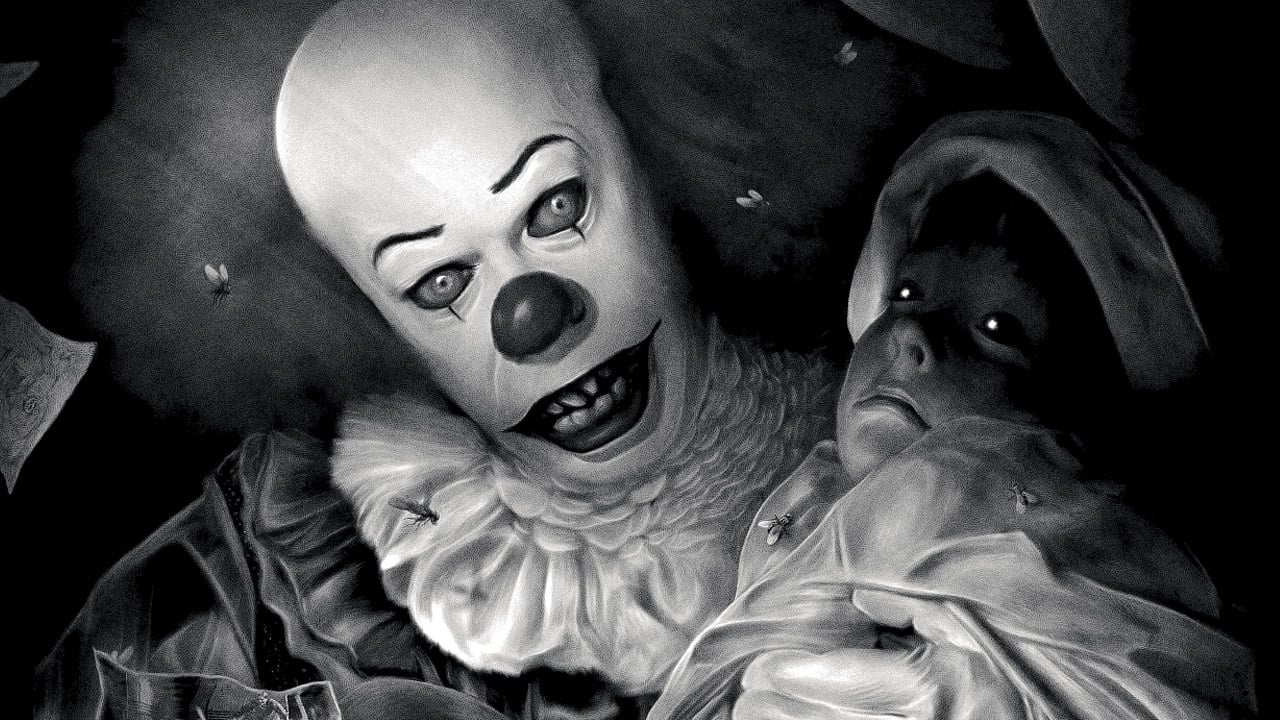
![Arsenal Unveiled in New Gameplay Trailer for Psychological Survival Horror Game ‘Holstin’ [Watch]](https://bloody-disgusting.com/wp-content/uploads/2025/04/holstin.jpg)
![‘The Amityville Horror’ Is the Granddaddy of Supernatural True Crime Films [Murder Made Fiction]](https://bloody-disgusting.com/wp-content/uploads/2019/07/Amityville-Horror-George.jpg)
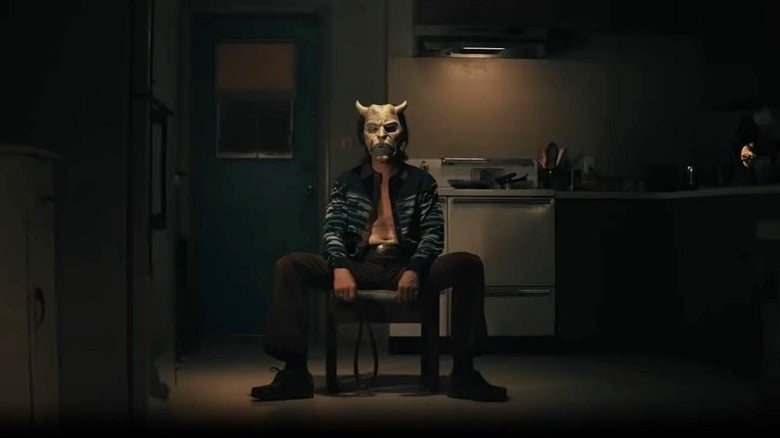












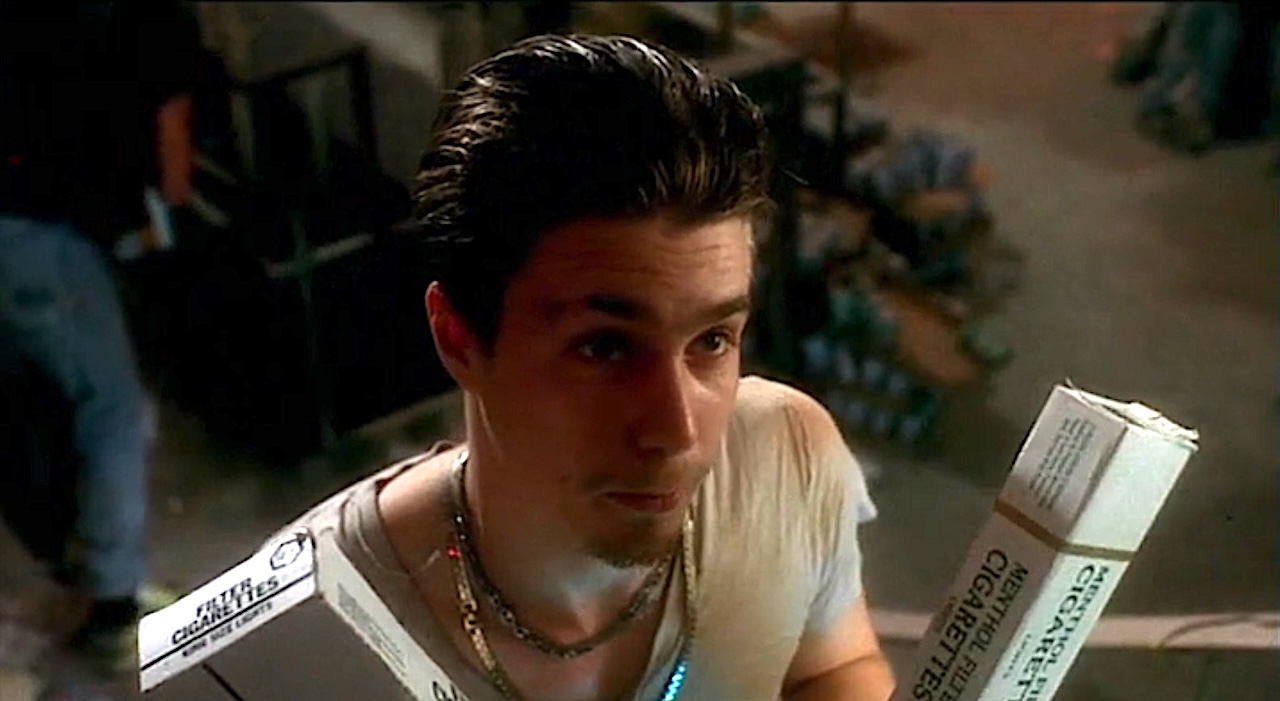



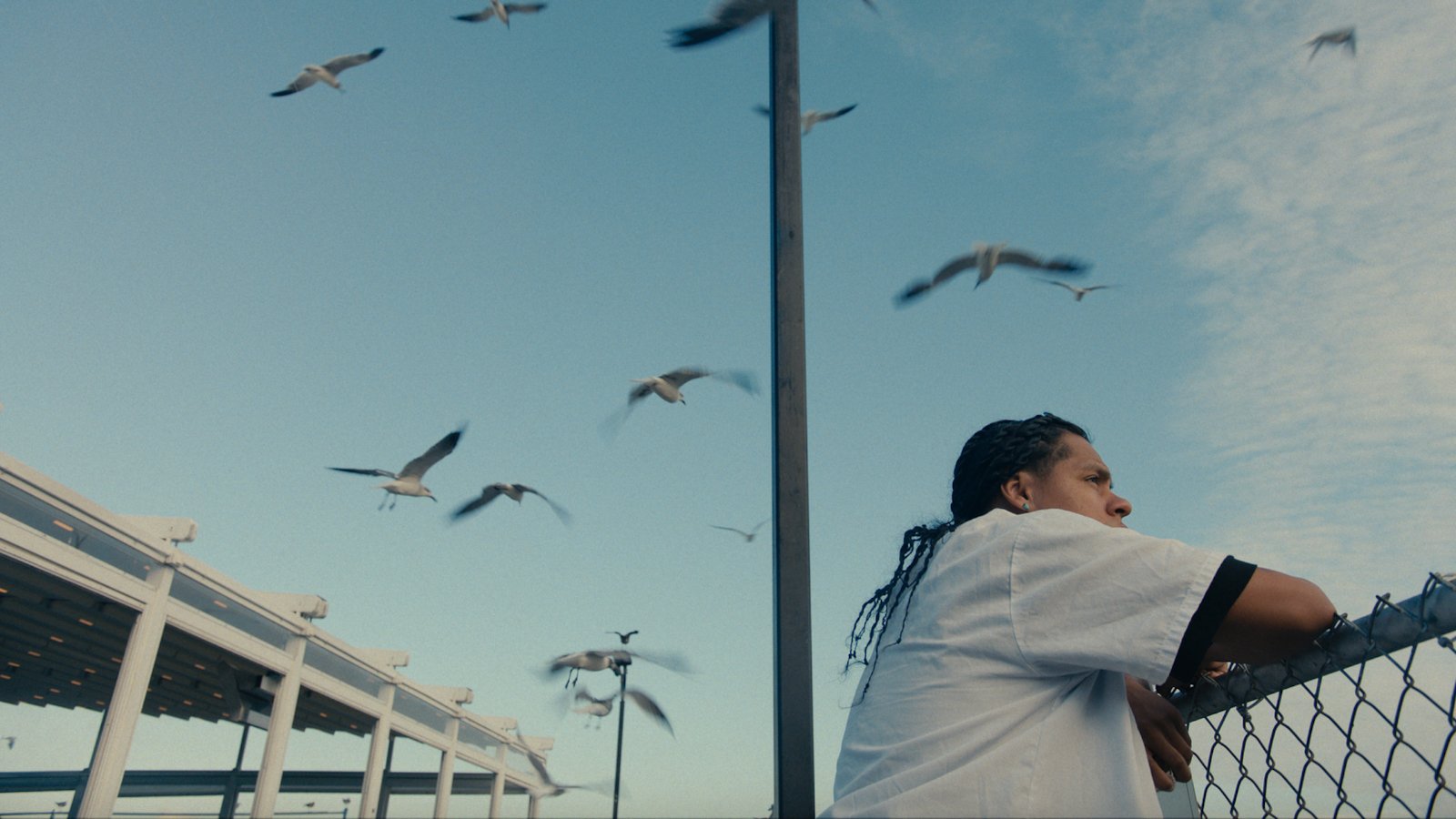



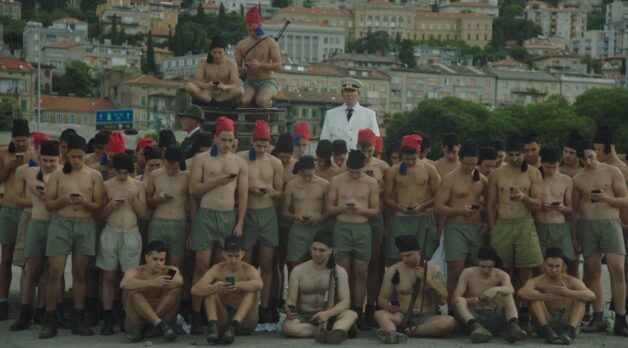
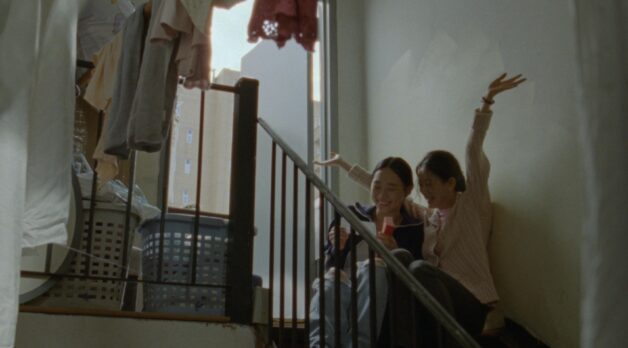
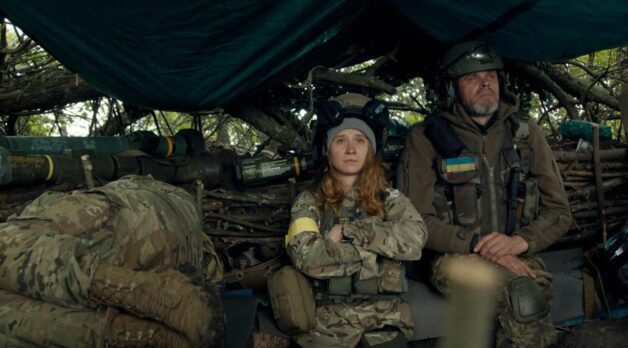
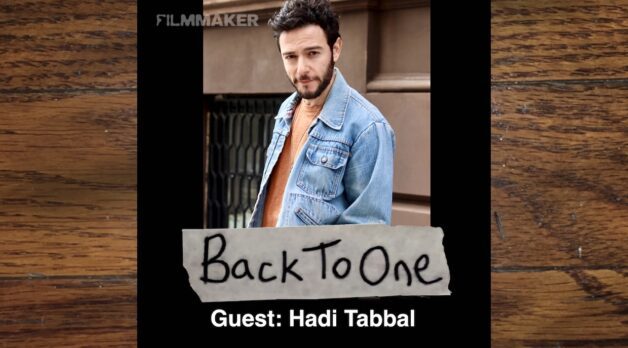














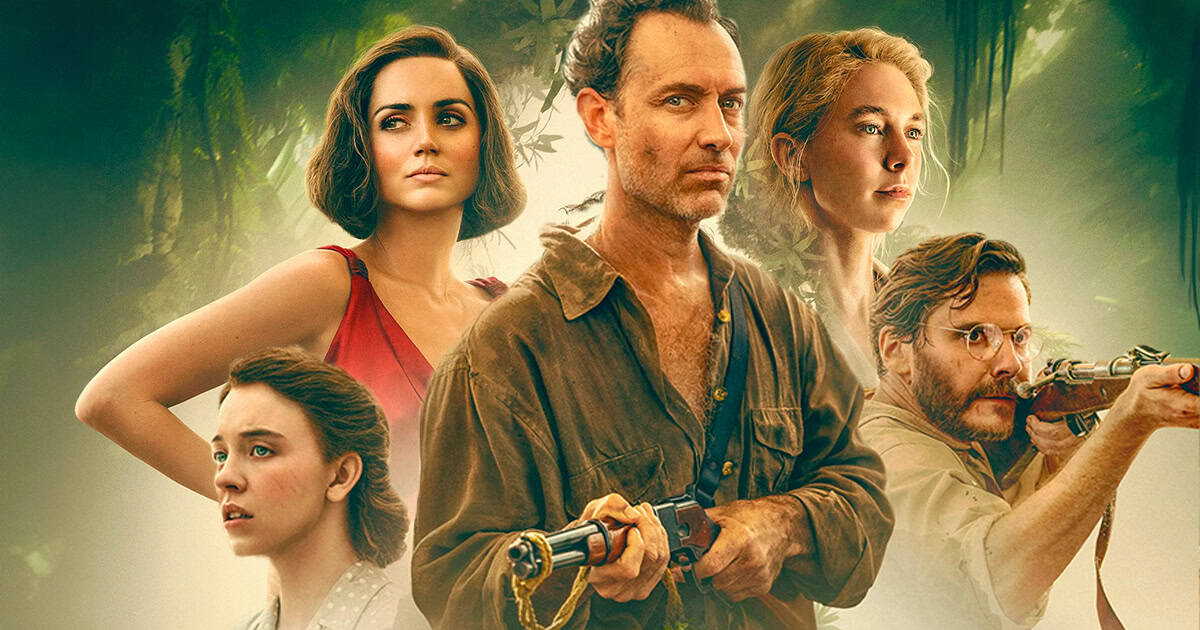


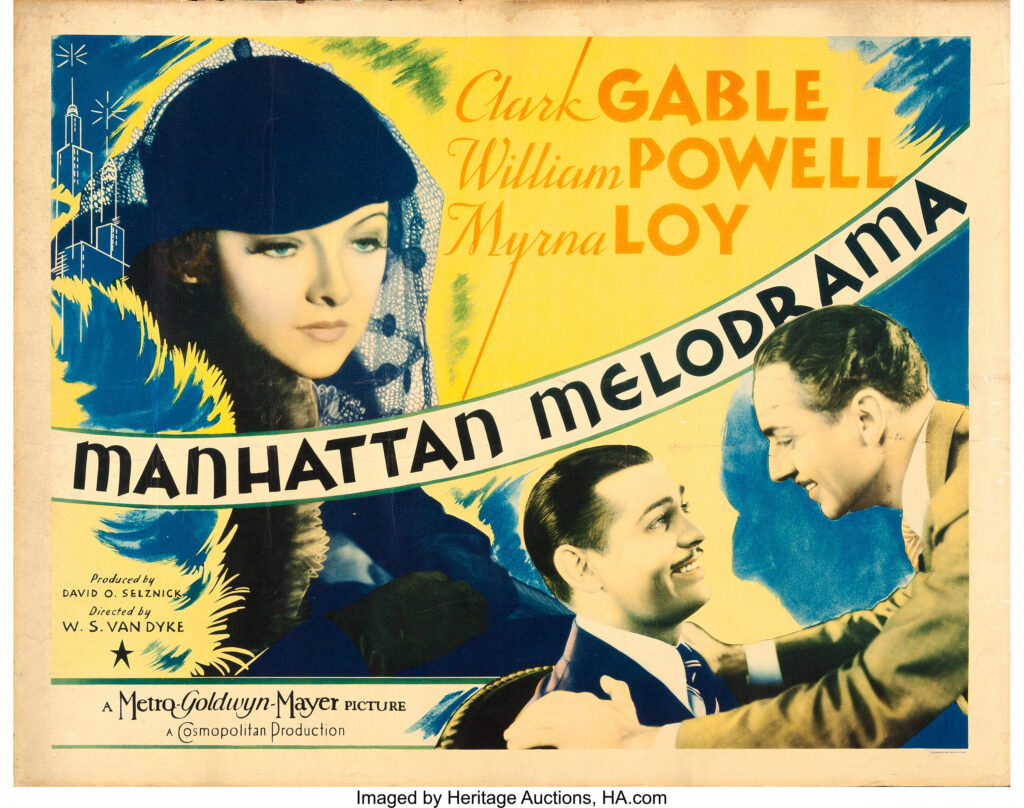

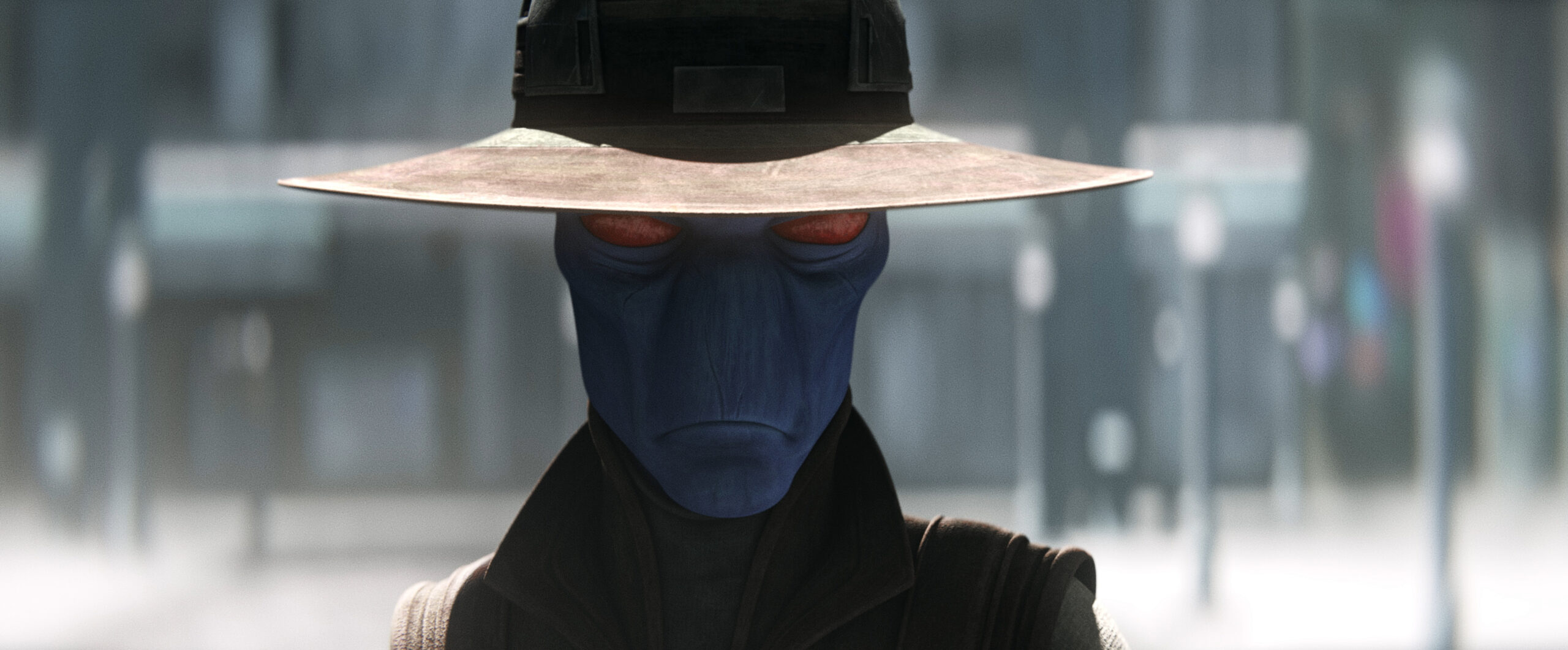
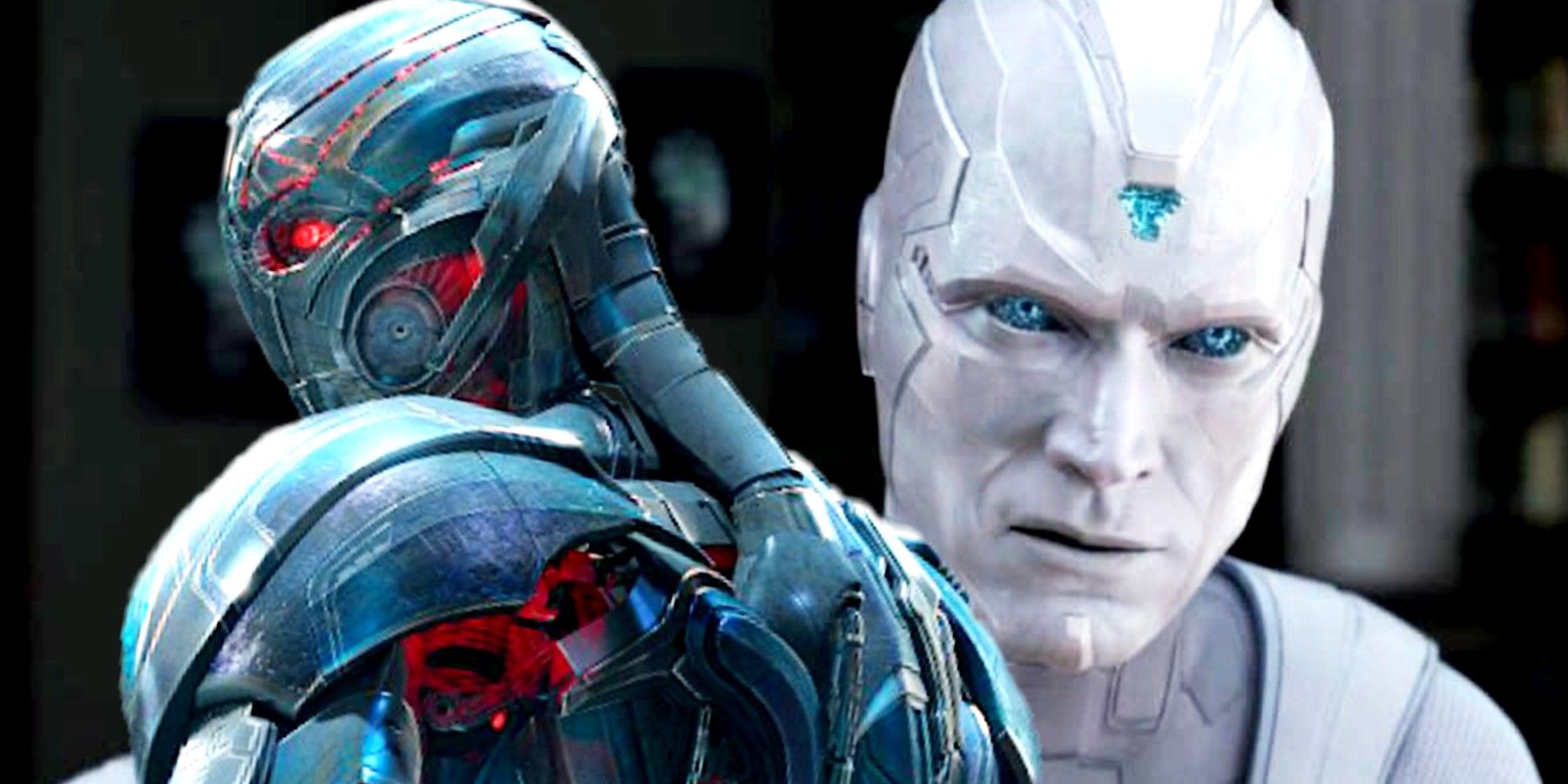
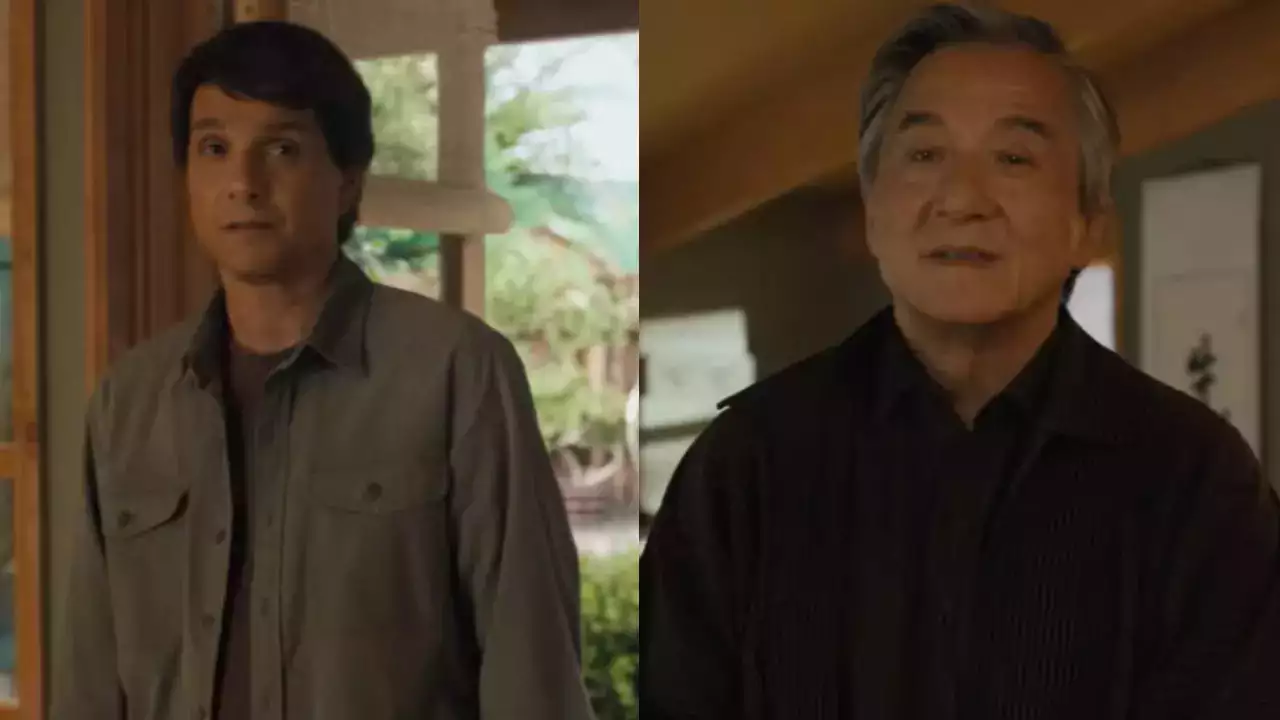

















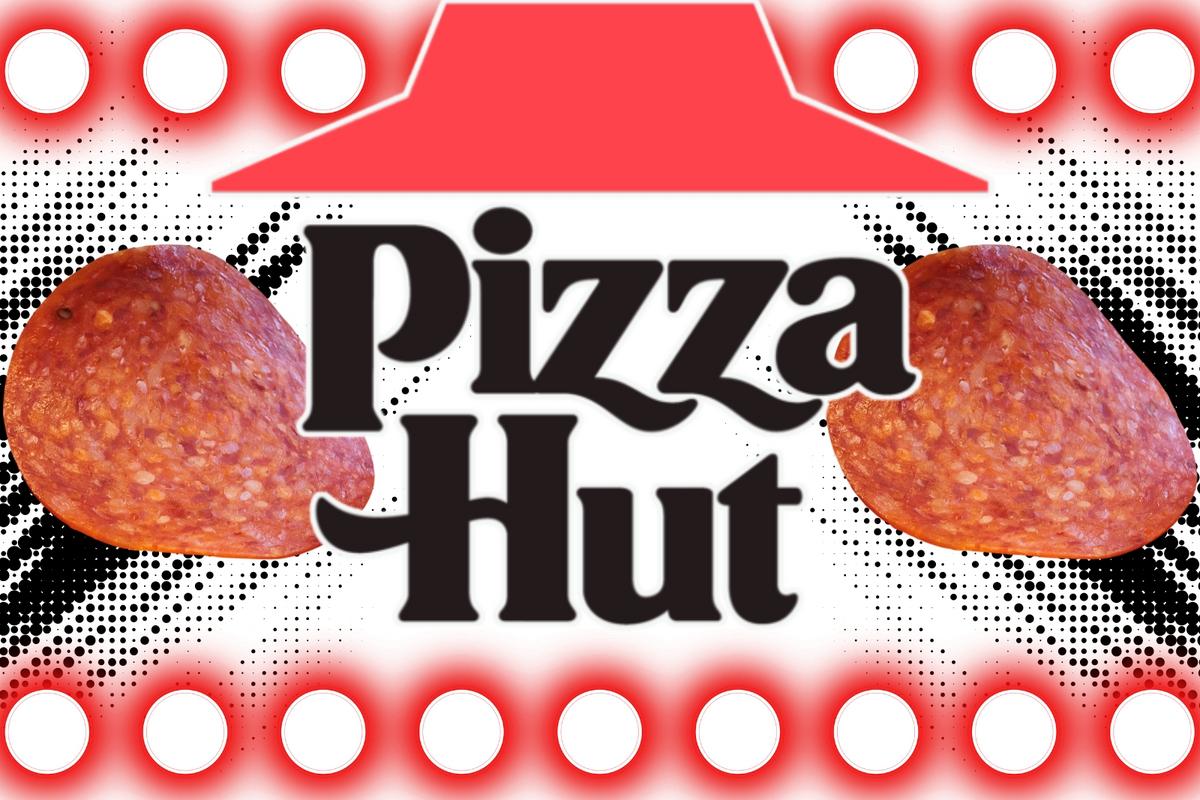

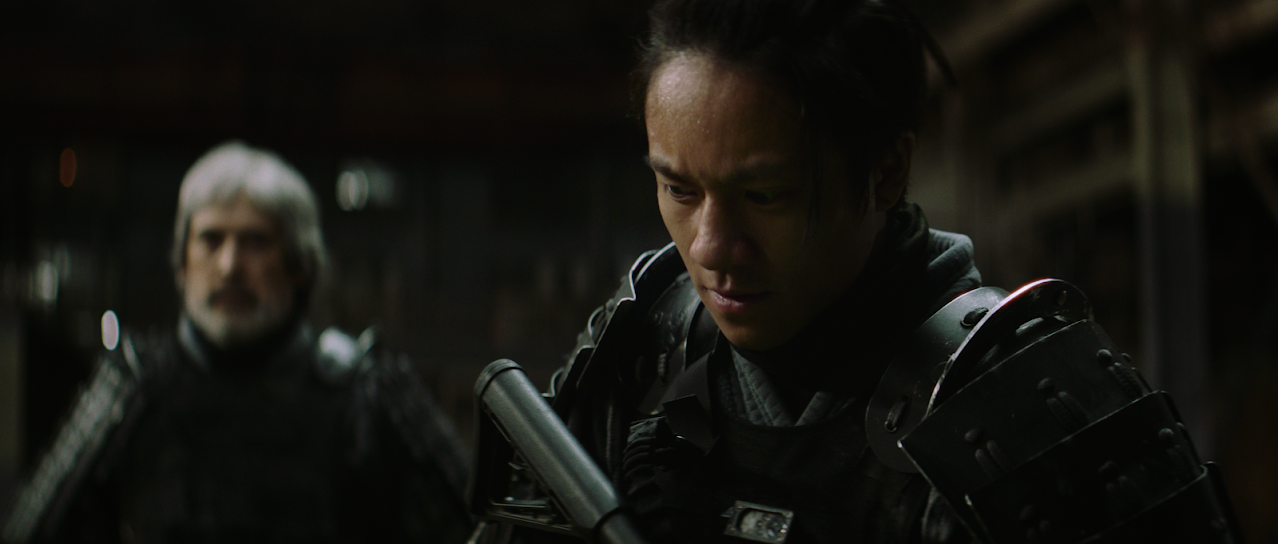
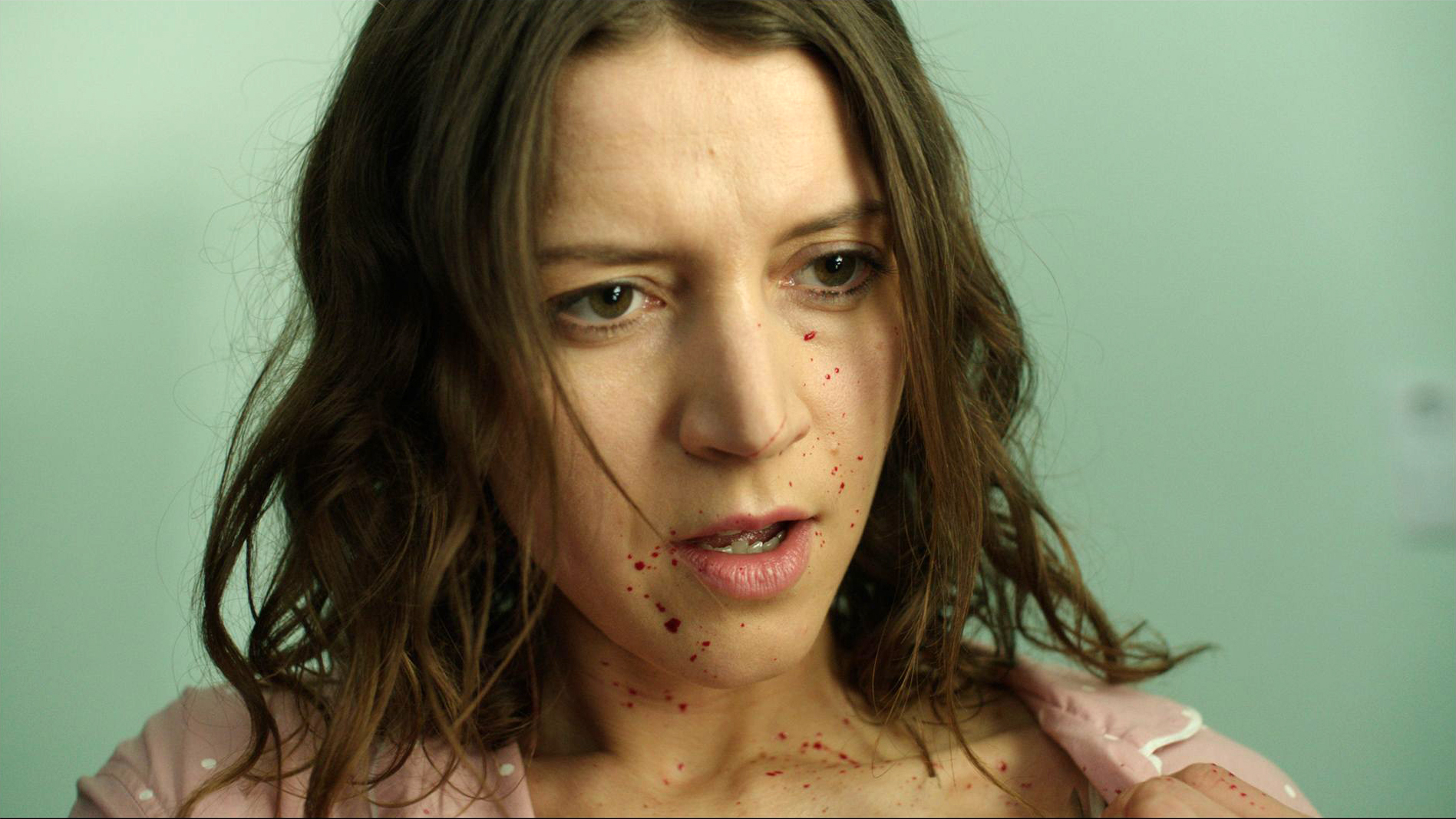


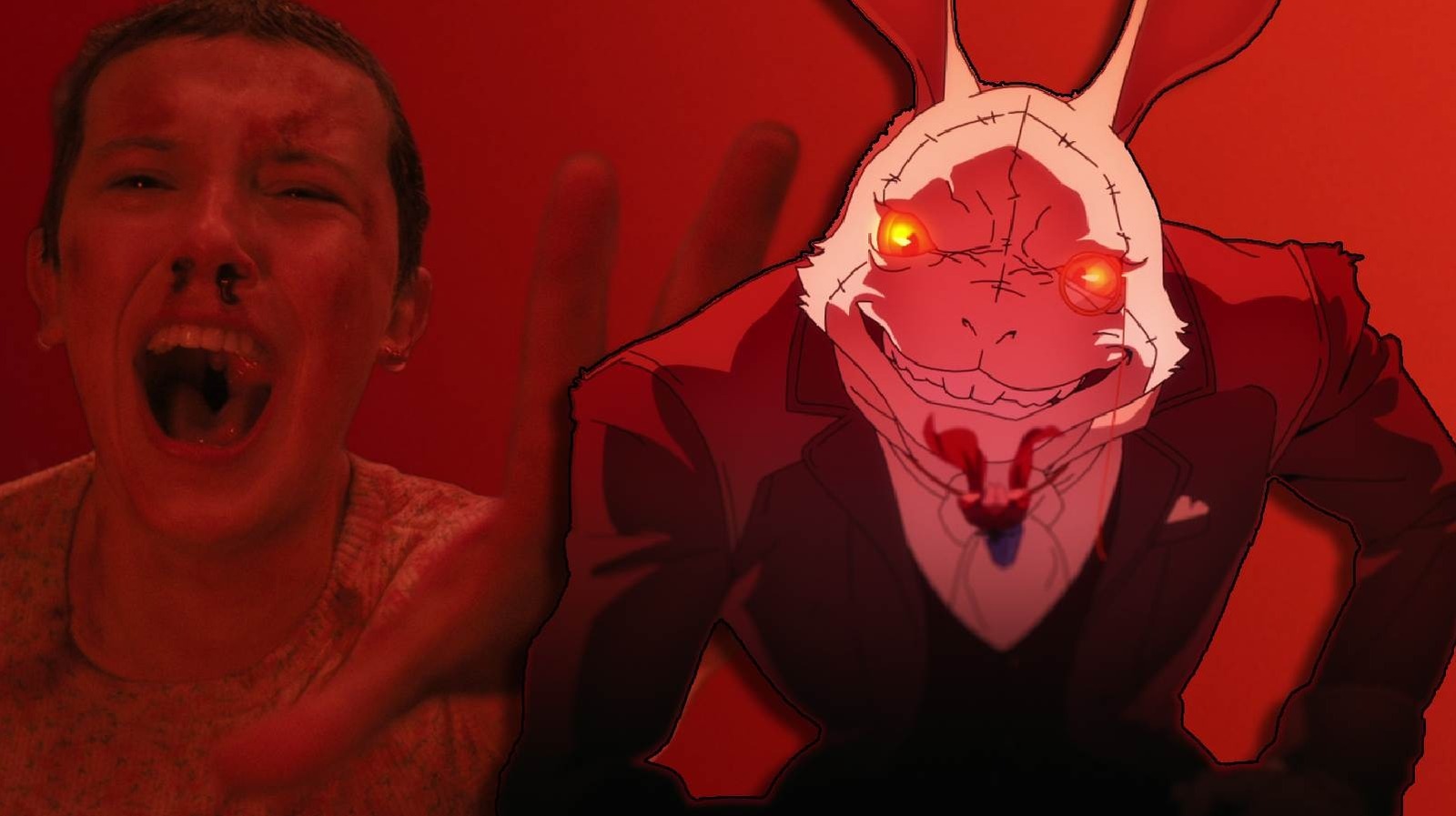
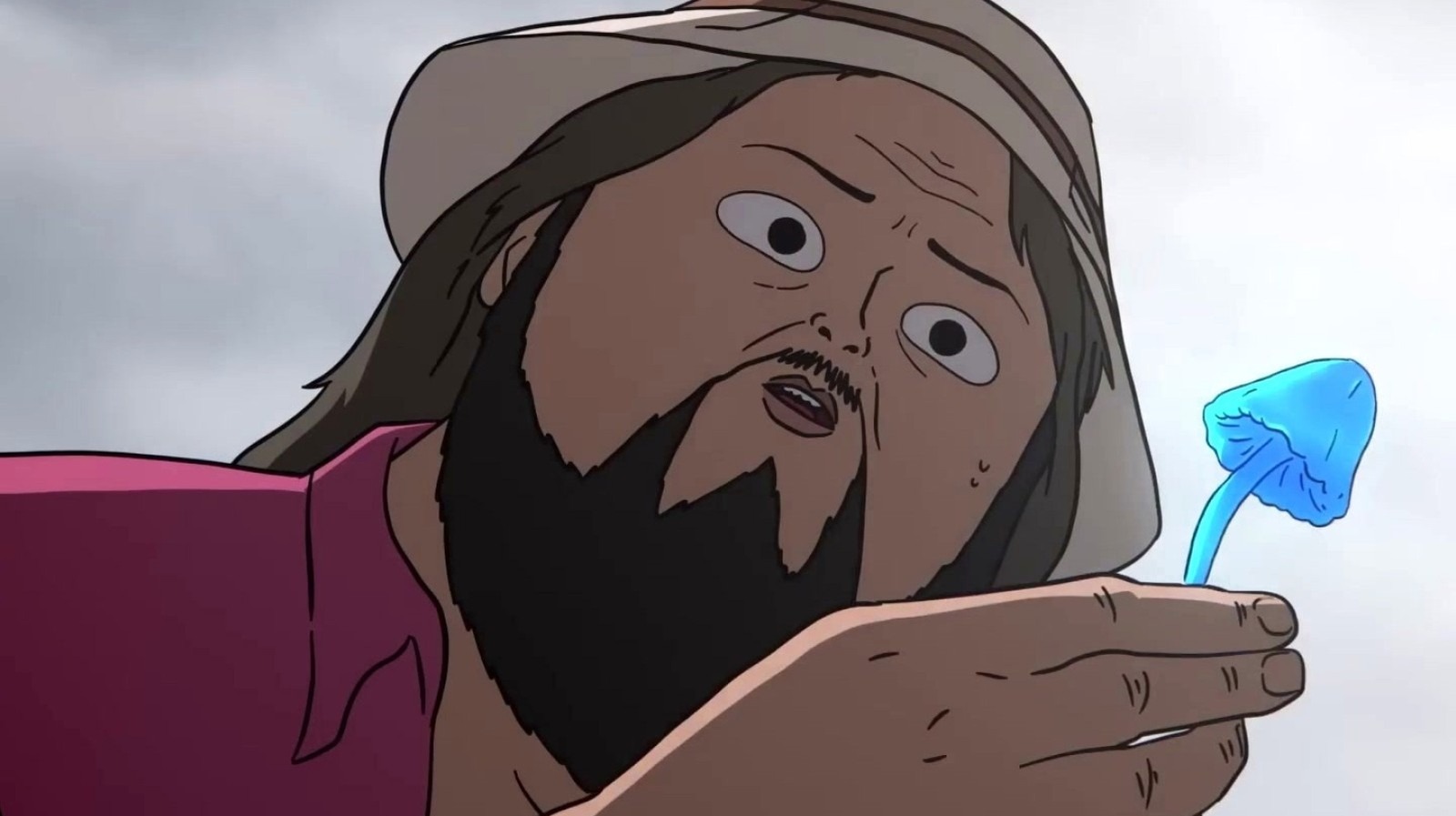
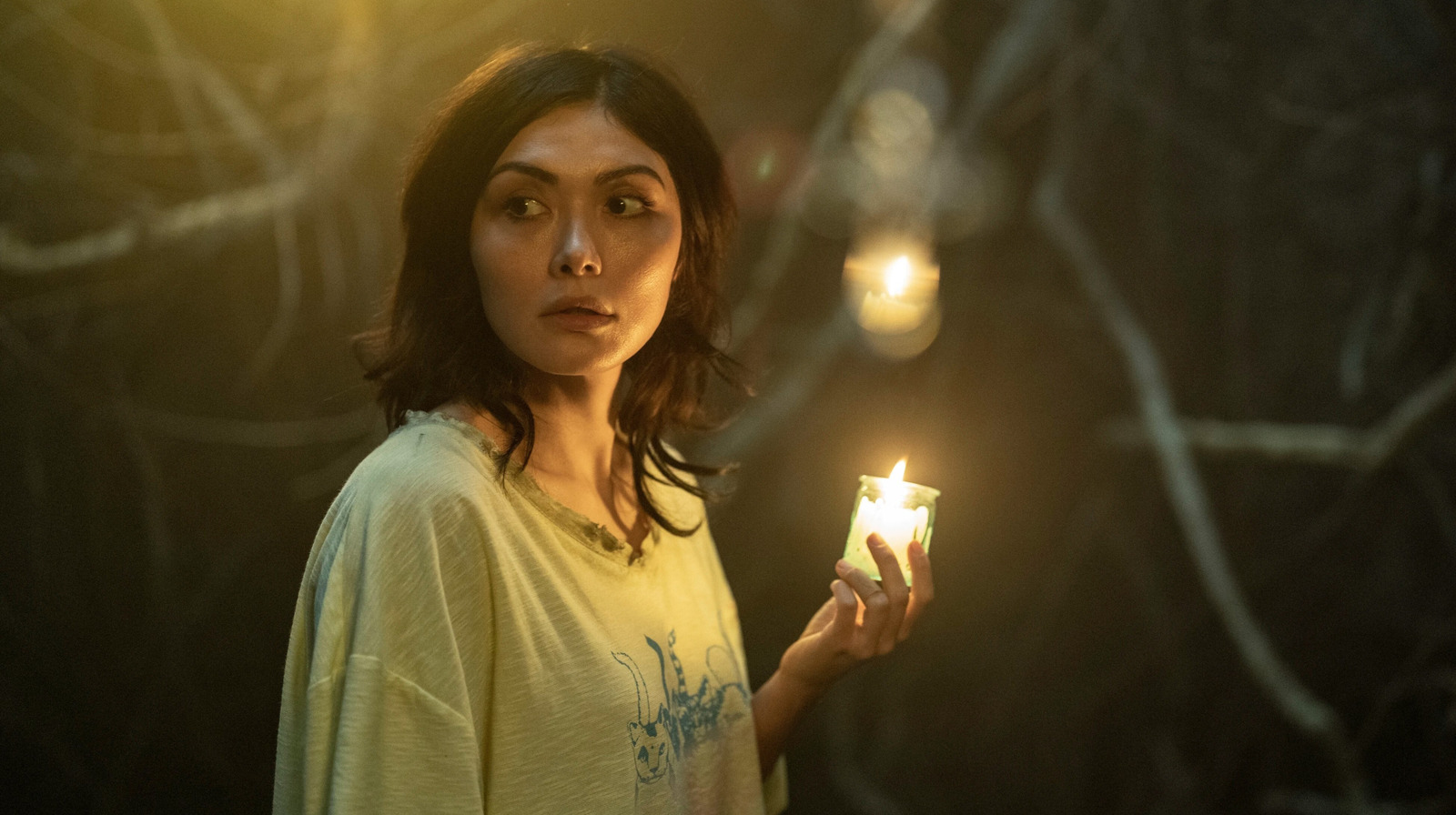
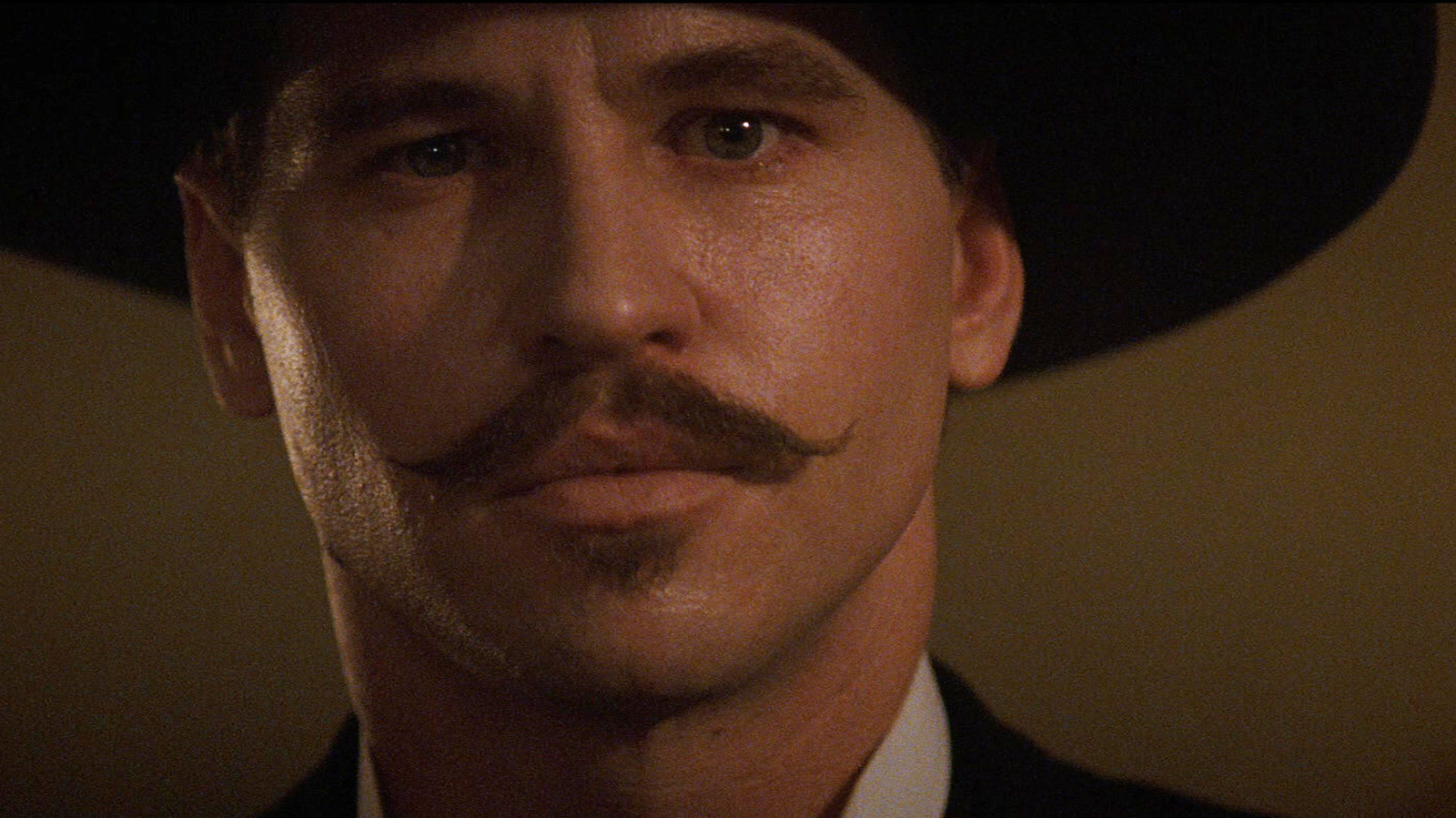





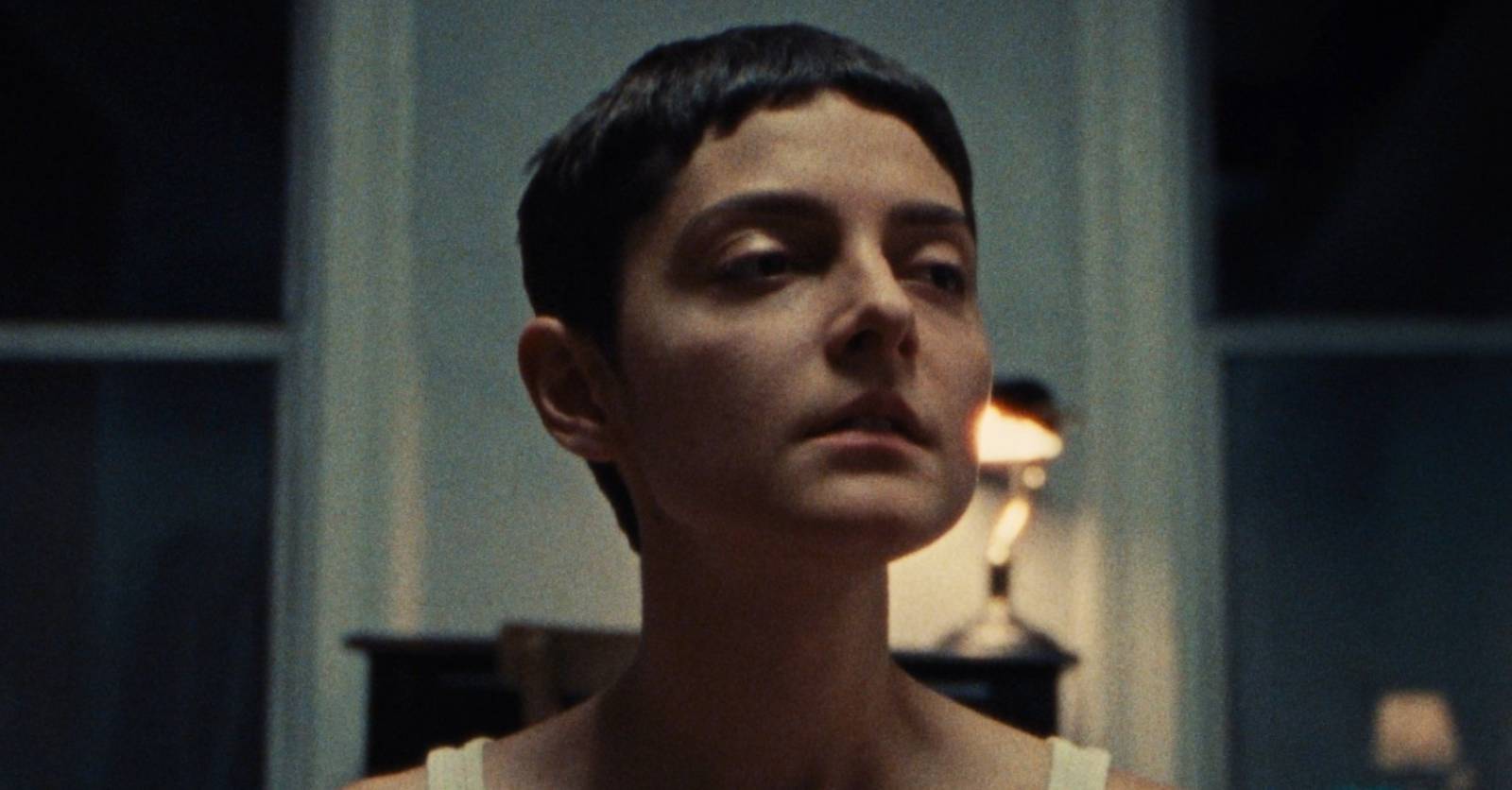
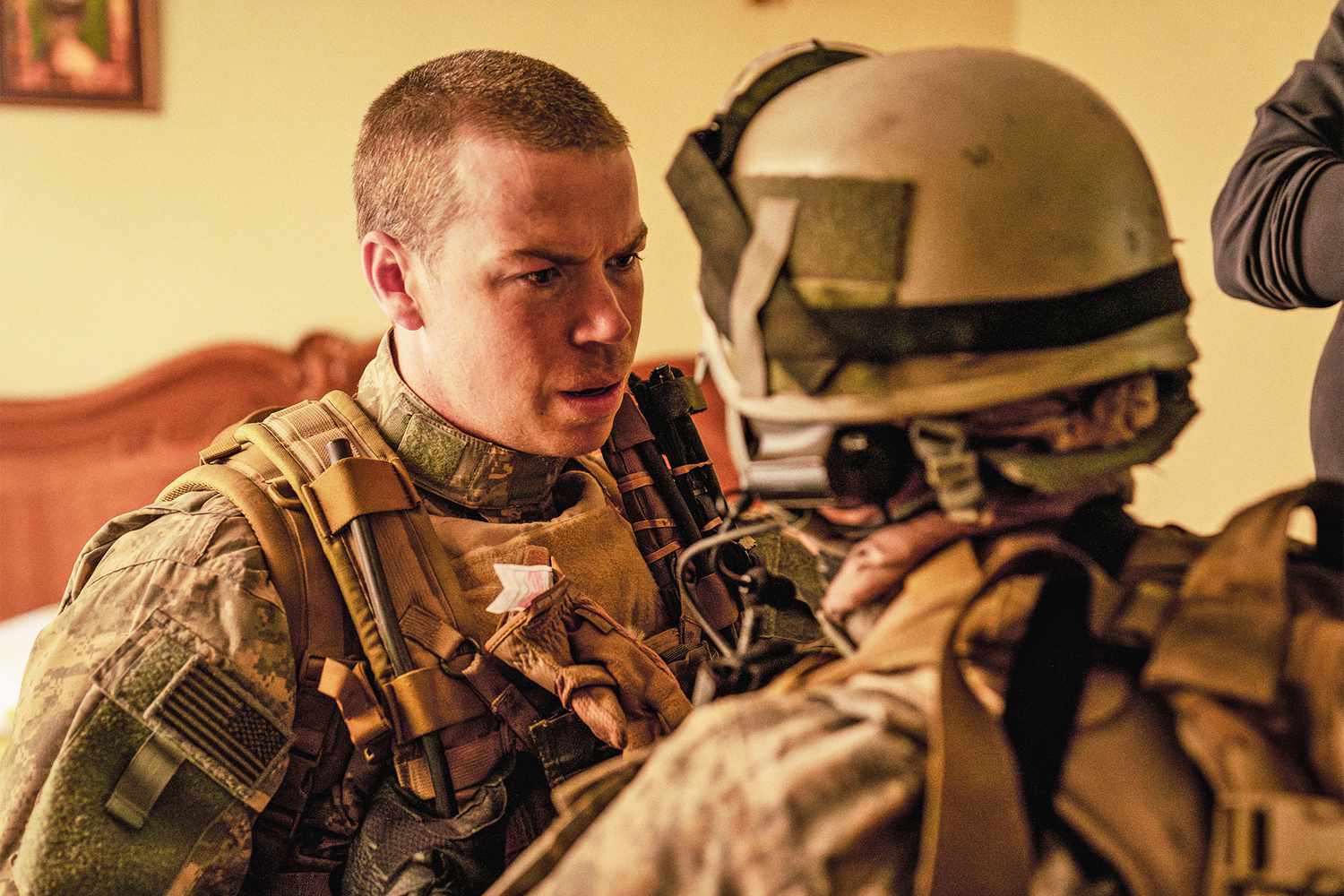
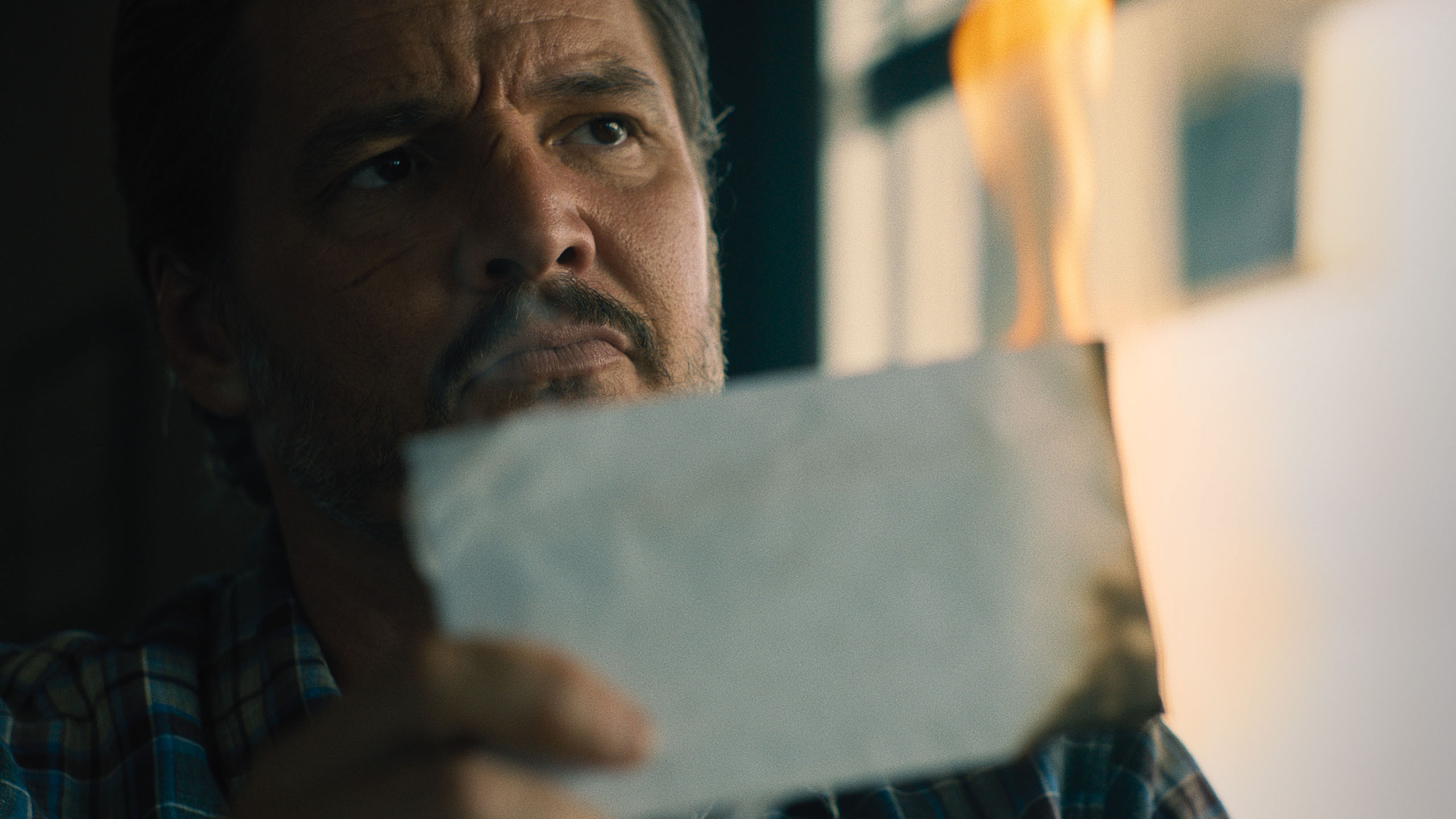




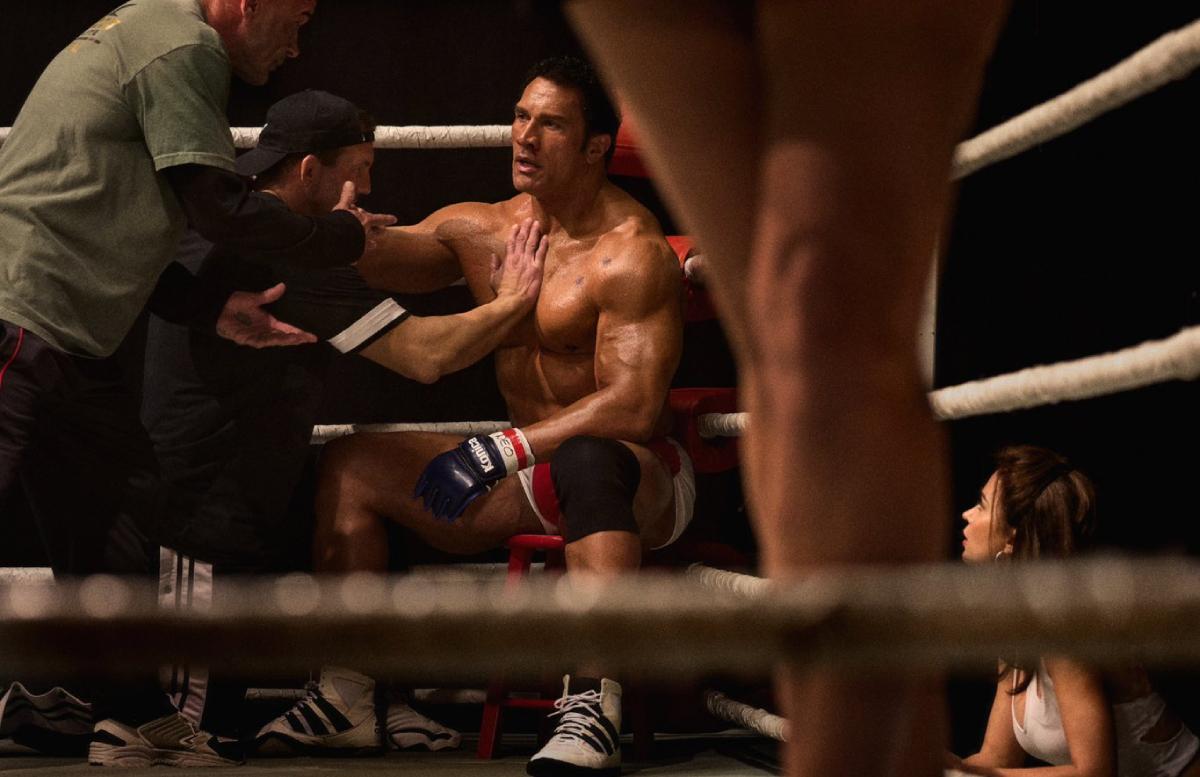
![‘Project Hail Mary,’ ‘Masters of the Universe,’ ‘After The Hunt’ Provide Amazon MGM Studios With Some Legit Fire [CinemaCon]](https://cdn.theplaylist.net/wp-content/uploads/2025/04/03034142/AmazonMGMStageCinemaCon.jpg)
![‘Wicked For Good’ & ‘Jurassic World Rebirth’ Look Massive For Universal Pictures [CinemaCon]](https://cdn.theplaylist.net/wp-content/uploads/2025/02/12165521/WickedSunset.jpg)
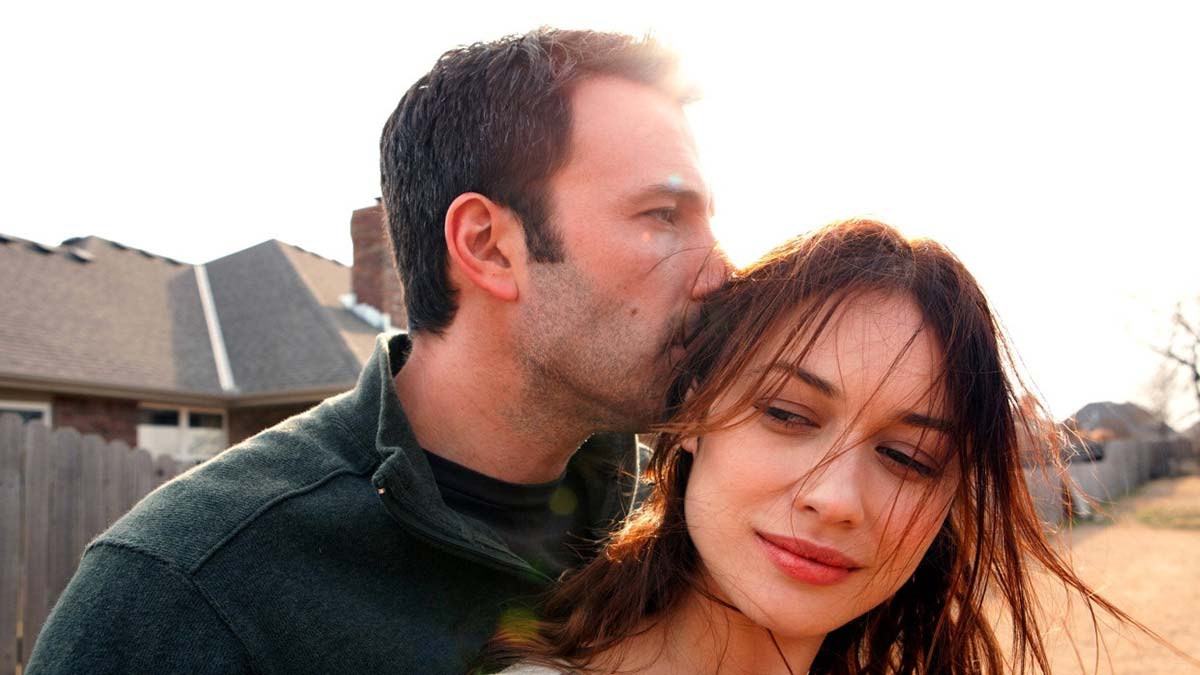





































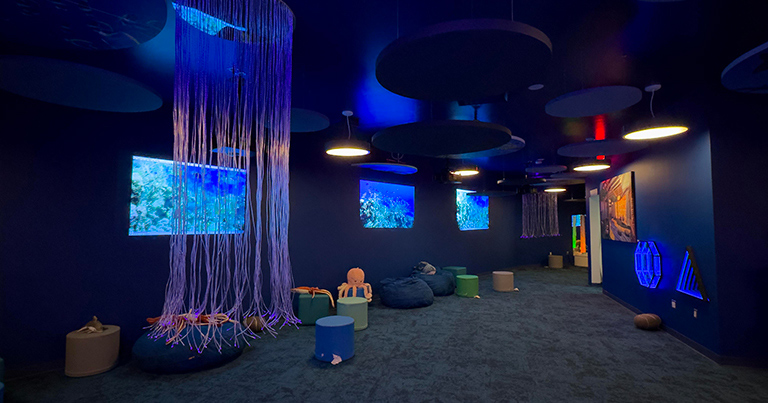













































































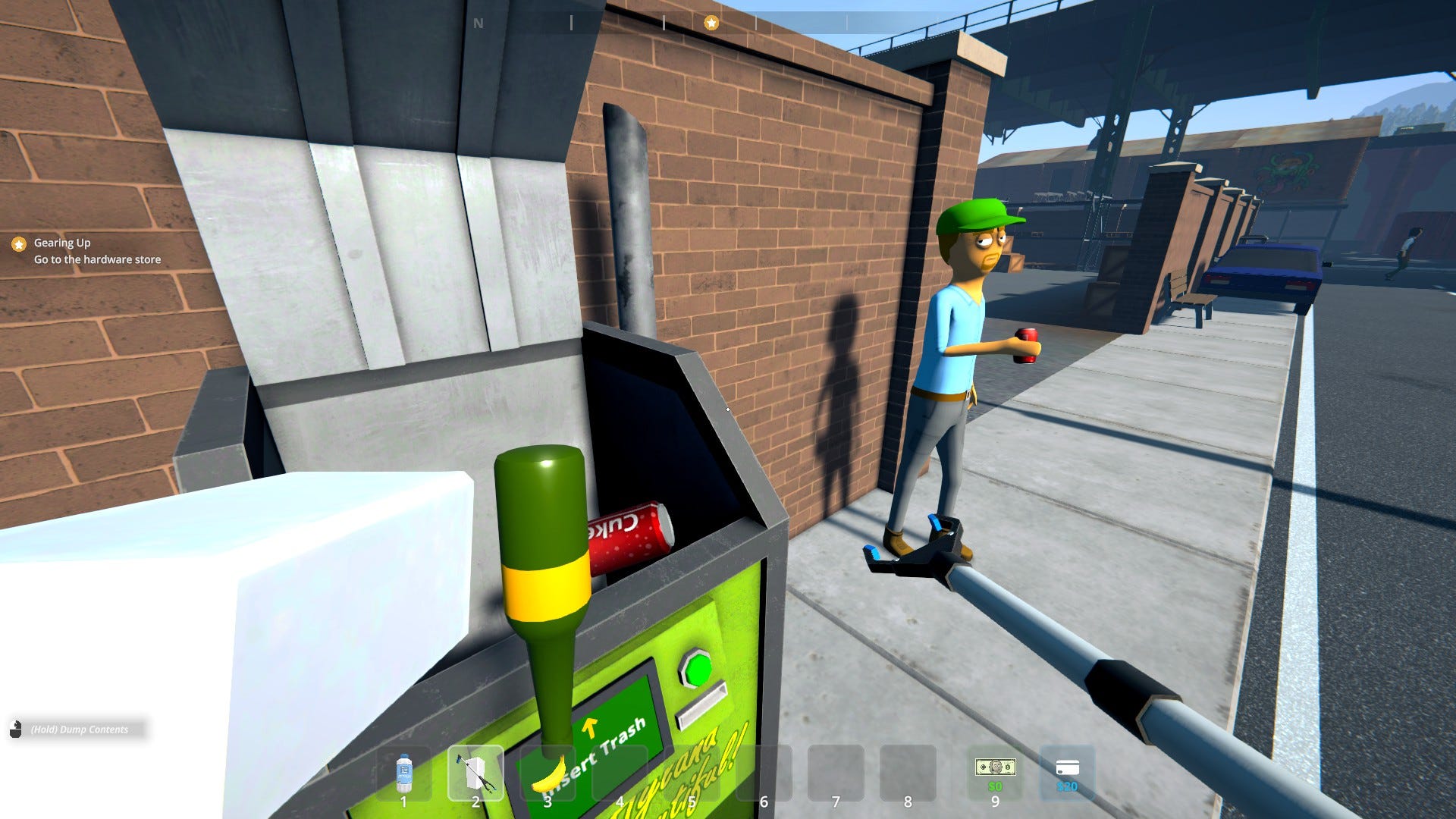







-Nintendo-Switch-2-–-Overview-trailer-00-00-32-(1)_HCqcxO1.png?width=1920&height=1920&fit=bounds&quality=80&format=jpg&auto=webp#)

